Unique Sanskrit Names for Newborn Baby Boy/Girl
In this article, we will try to cover as many unique names as possible. The names that have an interesting story/meaning behind them but you often don’t see in everyday use.
We will take the approach of covering the names in the Hindu Panchang order (and not as per the English alphabet).
Scroll to:
A(अ) | I(इ/ई) | U(उ) | Ch(च) | L(ल) | V(व) | K(क) | G(ग) | R(र) | S(स) | M(म) | N(न) | D(द) | Dh(ध) | P(प) | B(ब) | H(ह) | T(त) | Sh(श) | Bh(भ) | J(ज) | Y(य)
Unique Sanskrit names starting with A (अ)

More unique Sanskrit names starting with A (अ)-
Names for boys
- Agniveśa (अग्निवेश): (Ancient Āyurveda practitioner) one who dwells near the fire
- Agasti (अगस्ति): (name of a sage): a mountain-thrower. (strong/ valorous person)
- Agira (अगिर): Sun, Fire, A Rākṣasa (demon)
- Acyuta (अच्युत): (name of Lord Viṣṇu) Not fallen, firm, imperishable, permanent
- Aniruḍa (अनिरुड): (son of Pradyumna) Unobstructed, self-willed
- Abhīma (अभीम): (name of Viṣṇu) causing no fear
- Arinandana (अरिनन्दन): affording triumph to an enemy
- Arka (अर्क): Sun, A ray or flash of lightning
- Aja (अज): (Eminent King in the Raghu lineage) One who is present eternally, the ultimate Principle (Brahma)
- Aṃśula (अंशुल): radiant one
- Amogha (अमोघ): succeeding, fruitful, hitting the mark
- Adhvara (अध्वर): non-injuring, a sacrifice
- Akrūra (अक्रूर): (very famous devotee of Shrī Kṛṣṇa) one who is not cruel, one who is merciful
- Anala (अनल): fire, the deity Agni, fire in the stomach which digests food, wind
- Anuvrata (अनुव्रत): devoted to, faithful to, ardently attached to
- Ajātaśatru (अजातशत्रु): (name of Yudhiṣṭhira) having no enemy
- Ajīgarta (अजीगर्त): (name of a poor ascetic) one who doesn’t have anything to eat (lit. to swallow)
- Aśvaghoṣa (अश्वघोष): (Sanskrit poet) the sound of a horse
- Abhinavakālidāsa (अभिनवकालिदास): The modern Kālidasa. (a name given to a modern Sanskrit poet: Mādhavācārya)
- Aśvatthāman (अश्वत्थामन्): (son of Droṇācārya) having the strength of a horse
- Adhiratha (अधिरथ): (a charioteer of Karṇa once being the Prince of Aṅga kingdom) One who is on the cart or chariot
- Arbuda (अर्बुद): (a serpent-like Demon coming in the RV conquered by Indra) a long round mass, a swelling or a tumour
- Advaita (अद्वैत): (Epithet of Viṣṇu, identity of Brahmā or the supreme soul) Non-duality, having no duplicate, peerless, sole, unique.
- Aravinda (अरविन्द): Lotus, the Indian crane.
- Arghya (अर्घ्य): valuable, deserving a respectful reception (as a guest), a daily oblation to Sun during twilight (dawn and evening).
- Abhiṣeka (अभिषेक): Coronation, inauguration, purification.
- Aṅkuśa (अङ्कुश): Reins, control over something.
- Anurāga (अनुराग): Affection, love.
- Ārṣa (आर्ष): belonging to seers (Ṛṣis), archaistic.
- Ākāla (आकाल): the right time.
- Ākāśa (आकाश): a free space, vacuity, ether, sky or atmosphere.
- Ākāra (आकार): form, appearance, gesture or aspect of body, expression of the face.
- Ākhuga (आखुग): (name of Lord Gaṇeśa) lit. one who rides on a rat.
- Āgama (आगम): origin, approach, acquisition of knowledge, a traditional doctrine or sacred work.
- Āgastya (आगस्त्य): one belonging to ṛṣi Agasti, follower of ṛṣi Agasti.
- Āgneya (आग्नेय): belonging or consecrated to fire or deity Agni.
- Āgrayaṇa (आग्रयण): first libation at the Agniṣṭoma sacrifice, a form of Agni.
- Āghoṣa (आघोष): invocation, boastful statement, proclamation.
- Āṅgirasa (आङ्गिरस): descended from or belonging to the Aṅgiras.
- Āñjaneya (आञ्जनेय): (name of God Hanumān) son of Añjanā.
- Āḍambara (आडम्बर): immensity, sublimity, pleasure.
- Ātitheya (आतिथेय): proper for or attentive to a guest, hospitable.
- Ātmaruha (आत्मरुह): one who grows independently.
- Ātmavīra (आत्मवीर): a mighty man.
- Ādinātha (आदिनाथ): (name of Śiva) the initial or supreme lord.
- Ādeśa (आदेश): advice, instruction, declaration, command, order.
- Ādhirathi (आधिरथि): son of Adhiratha Karṇa.
- Ānuśrava (आनुश्रव): resting on tradition, derived from the Veda or tradition.
- Ānūka (आनूक): ornament, jewels.
- Ānanda (आनन्द): pure happiness, joy, enjoyment.
- Āprīta (आप्रीत): gladdened, joyous.
- Ābhāsa (आभास): splendor, light, color, appearance.
- Āmoda (आमोद): gladdening, cheering up, serenity, aroma.
- Āyudha (आयुध): weapon, gold used for ornaments.
- Āryabhaṭṭa (आर्यभट्ट): (famous ancient mathematician and astronomer of India) noble and intelligent person.
- Āruṇi (आरुणि): Name of Uddālaka, a renowned Brāhmaṇa teacher.
Names for girls
- Ajarā (अजरा): Ever young
- Añjanī (अञ्जनी): (mother of Hanumān) a woman (who is fit for the application of ointments, pigments, sandal-wood-paste etc.)
- Amalā (अमला): clear, pure, shining
- Arjunā (अर्जुना): white, clear, made of silver
- Arcā (अर्चा): worship, adoration
- Avaśā (अवशा): independent, unrestrained, free
- Aśokā (अशोका): not causing sorrow, not feeling sorrow
- Akṣarā (अक्षरा): imperishable, unalterable
- Amitā (अमिता): boundless, infinite
- Aruṇā / Aruṇī (अरुणा / अरुणी): reddish, morning or dawn
- Añjī (अञ्जी): a blessing
- Anaghā (अनघा): sinless, faultless
- Anantā (अनन्ता): boundless, limitless, endless
- Anupamā (अनुपमा): incomparable, matchless, excellent
- Aśani (अशनि): the thunderbolt, a flash of lightning
- Ardhagaṅgā / Ardhajāhnavī (अर्धगङ्गा / अर्धजाह्नवी): half of the river Gaṅgā. (name of the river Kāverī)
- Arundhatī (अरुन्धती): A medicinal climbing plant, the wife of seer Vasiśṭha, wife of Dharma, the little and scarcely visible star Alcor.
- Abhirūpā (अभिरूपा): Beautiful in every sense.
- Anvikṣā (अन्विक्षा): Search, introspection, examining, inquiry.
- Ākāṅkṣā (आकाङ्क्षा): desire, wish.
- Āgamitā (आगमिता): learnt, studied, ascertained.
- Āgnikī (आग्निकी): belonging to the preparation of the sacrificial fire.
- Āgnihotrikā (आग्निहोत्रिका): belonging to the Agnihotra sacrifice.
- Āgnidhrā (आग्नीध्र): care of the sacred fire.
- Āghāṭī (आघाटी): a cymbal or rattle.
- Āṅgikā (आङ्गिका): expressed by bodily action or attitude or gestures (as dramatic sentiment, passion, and so on).
- Ājāni (आजानि): noble birth, descent.
- Ājñā (आज्ञा): order, command, authority, unlimited power.
- Āñjanyā (आञ्जन्या): one whose eyes are to be anointed with ointment.
- Āñjasī (आञ्जसी): immediate, direct, unhesitant.
- Ātapā (आतपा): sunshine.
- Ātmatā (आत्मता): essence, nature.
- Ātreyī (आत्रेयी): a female descendant of ṛṣi Atri.
- Ādimā (आदिमा): first, prior, primitive, original.
- Ādyā (आद्या): (name of Goddess Durgā) being at the beginning, the earth, unparalleled, unprecedented.
- Ādṛtā (आदृता): attentive, careful, zealous.
- Āntikā (आन्तिका): an elder sister.
- Āryā (आर्या): (name of goddess Pārvatī) a name of a Sanskrit metre.
- Āśā (आशा): hope.
- Āpagā (आपगा): a river, stream.
- Āprī (आप्री): name of a particular kind of invocation spoken previous to the offering of oblations.
- Ābhā (आभा): splendor, light, a flash, beauty, appearance.
- Ābhūti (आभूति): reaching, attaining, superhuman power or strength.
- Ābherī (आभेरी): name of one of the Rāgiṇīs or modes of music.
Unique Sanskrit names starting with the letter I (इ/ई)
Names for boys
- Ikkavāla (इक्कवाल): good fortune, prosperity.
- Ikṣvāku (इक्ष्वाकु): name of a son of Vaivasvata Manu (the first king of the solar dynasty in Ayodhyā).
- Icchārāma (इच्छाराम): name of an author.
- Ijya (इज्य): a teacher, a deity or god, name of Bṛhaspati (the Guru of the gods).
- Iddha (इद्ध): kindled, lighted, shining, blazing.
- Iddhmavāha (इद्ध्मवाह): name of a son of Agastya Ṛṣi; one who carries fuel sticks or fuel in general (for the sacrifice).
- Iṭa (इट): name of a Ṛṣi belonging to Ṛgveda, a kind of reed or grass, a mat woven from such a grass.
- Iḍa (इड): name of Agni (who is to be addressed with prayers, or invoked with the stream or flow of praise).
- Indīvara (इन्दीवर): the blossom of a blue lotus.
- Indu (इन्दु): the moon, the Soma juice (often addressed in Rigveda), a bright drop or a spark.
- Indra (इन्द्र): The God of the atmosphere and sky or lord of rain. (one who has Vajra i.e. thunderbolt in his hand and smites the enemies with that.)
- Ina (इन): able, strong, mighty, glorious, a king, the sun, name of an Āditya.
- Inu (इनु): name of a Gandharva (a demi-god).
- Ilivila (इलिविल): name of a son of Daśaratha.
- Ilūṣa (इलूष): name of the father of Kavaṣa.
- Ilya (इल्य): name of a mythical tree in the other world.
- Iśhu (इषु): an arrow, name of a Soma ceremony, name of a constellation, ray of light.
- Iśmī (इष्मी): going quickly, speedy, impetuous (associated with the winds).
- Iṣṭa (इष्ट): desired, worshipped with sacrifices, sacrifice, beloved, agreeable, cherished, respected.
- Iṣira (इषिर): refreshing, fresh, active, vigorous, quick, name of Agni.
- Itvara (इत्वर): travelling, a traveller.
- Ījāna (ईजान): one who has sacrificed.
- Īlina (ईलिन): name of a son of Tansu and father of Duśyanta.
- Īśāna (ईशान): wealthy, reigning, ruler, master, one of the older names of Śiva or Rudra.
- Īśvara (ईश्वर): capable, liable, master, lord, prince, the supreme being.
Names for girls
- Ikṣulā (इक्षुला): name of a river mentioned in Mahabhārata.
- Iṅgudī (इङ्गुदी): name of a medicinal tree (Terminalia Catappa).
- Ijyā (इज्या): one who is revered or honoured, sacrifice, making offerings to the gods or manes.
- Iḍikā (इडिका): the earth.
- Iṭhimikā (इठिमिका): name of a section of the Kāṭhaka recension of YajurVeda.
- Itkilā (इत्किला): name of a perfume.
- Indirā (इन्दिरा): name of Goddess Lakṣmī, beauty, splendour.
- Indrāṇī (इन्द्राणी): wife of God Indra, name of Goddess Durgā, pupil of the left eye.
- Indrajā (इन्द्रजा): descended from Indra.
- Indukalā (इन्दुकला): a digit of the moon.
- Invagā (इन्वगा): name of the constellation (Nakṣatra) Mṛgaśīrṣa.
- Ibhoṣaṇā (इभोषणा): a kind of aromatic plant.
- Irā (इरा): any drinkable fluid, enjoyment, refreshment, name of an Apsaras, the Earth, name of the Goddess of Speech i.e. Sarasvatī.
- Irikā (इरिका): name of a plant.
- Ilavilā (इलविला): name of daughter of Tṛṇabindu (wife of Viśravas and mother of Kubera).
- Ilā (इला): speech, the earth, flow.
- Ilinā (इलिना): name of the daughter of Yama.
- Ilvakā (इल्वका): the five stars in Orion’s head.
- Ityā (इत्या): going, stepping forward.
- Iśīkā (इशिका): the stem or stalk of grass used as an arrow, an elephant’s eyeball.
- Iṣṭi (इष्टि): impulse, acceleration, invitation, order.
- Īṣā (ईषा): the pole or shafts of a carriage or plough, a particular measure.
- Īhitā (ईहीता): sought, striven for, wished or desired.
- Īhā (ईहा): effort, exertion, activity.
- Īvatī (ईवाती): magnificent, large, going or moving.
Unique Sanskrit names starting with the letter U (उ)
Names for boys
- Uktha (उक्थ): eulogy, praise, series of verses chanted together.
- Ukṣan (उक्षन्): Name of various deities like Soma, Maruts, Sun and Agni, (lit.) large, an ox or bull.
- Ukṣita (उक्षित): Sprinkled or consecrated, strong, fully grown.
- Ugravīrya (उग्रवीर्य): terrible in might.
- Uṅkāra (उङ्कार): name of a companion of Viṣṇu.
- Ucathya (उचथ्य): (name of an Āṅgirasa seer, author of some hymns of the Ṛgveda) deserving praise.
- Uccadeva (उच्चदेव): (name of God Viṣṇu or Kṛṣṇa) highest God.
- Ucchikha (उच्छिख): (Name of a Nāga in Mahābhārata) high-crested, blazing up, radiant.
- Ucchiras (उच्छिरस): one with an upraised head.
- Ujjendra (उज्जेन्द्र): name of a man.
- Ujjhaka (उज्झक): a devotee, a cloud.
- Uḍḍīśa (उड्डीश): name of Śiva.
- Utaṅka (उतङ्क): name of a Ṛṣi.
- Utathya (उतथ्य): name of a son of Aṅgiras and elder brother of Bṛhaspati.
- Utkala (उत्कल): name of a son of Dhruva.
- Uttama (उत्तम): best, excellent, highest, chief.
- Udāna (उदान): one of the five vital-airs present in the body, name of a kind of snake, joy.
- Udaya (उदय): rising, coming forth, being visible.
- Udayana (उदयन): (name of several kings and authors in Sanskrit literature) rising of the sun etc., conclusion, result.
- Udita (उदित): said, spoken, proclaimed, handed down.
- Uddālaka (उद्दालक): (name of a Sanskrit teacher) a kind of honey.
- Udbhava (उद्धव): (name of a son of Nahuṣa) existence, generation, origin.
- Udraka (उद्रक): name of a Ṛṣi.
- Unmaṇi (उन्मणि): a gem lying on the surface.
- Umeśa (उमेश): (name of God Śiva) husband of Umā i.e. Goddess Pārvatī.
Names for girls
- Ukti (उक्ति): proclamation, expression, a worthy speech or word.
- Ugrasenī (उग्रसेनी): name of wife of Akrūra.
- Ucitā (उचिता): delightful, pleasurable, agreeable.
- Ujjiti (उज्जिति): victory.
- Ujjeśā (उज्जेशा): victorious.
- Ujjvalā (उज्ज्वला): Blazing, shining, splendid, a form of the Jagatī metre.
- Uḍu (उडु): a star or constellation in the moon’s path.
- Utkaṇikā (उत्कणिका): desire, longing.
- Utkalikā (उत्कालिका): a bud, unblown flower.
- Utkalitā (उत्कलिता): blossoming, brilliant, bright.
- Uttarā (उत्तरा): (daughter of king Virāṭa and daughter in law of Arjuna) the northern quarter, name of a constellation.
- Utpalā (उत्पला): name of an ancient river.
- Uditi (उदिति): ascending or rising of the sun, conclusion or end of a sacrifice.
- Udgitā (उद्गिता): sung, celebrated.
- Uddyotā (उद्द्योता): light, luster, flashing up.
- Udbhaṭā (उद्भटा): excellent, eminent, extraordinary.
- Unnati (उन्नति): (name of the daughter of Dakṣa, name of the wife of Garuḍa) high, eminent, sublime, noble, prosperity.
- Umā (उमा): name of Goddess Durgā or Pārvatī.
- Unmukhī (उन्मुखी): one who looks upwards or raising the face.
- Upakośā (उपकोशा): name of a daughter of Upavarṣa and wife of Vararuci Kātyāyana.
- Upamā (उपमा): uppermost, highest, eminent, comparison, resemblance, equality.
- Upendrā (उपेन्द्रा): name of a river in ancient Sanskrit scripture.
- Urvaśī (उर्वशी): name of an Apsaras, i.e. a celestial demi-goddess.
- Urvī (उर्वी): the earth, spacious, extended, great.
- Urmilā (उर्मिला): name of the younger sister of Sītā and wife of Lakṣmaṇa
- Ulkā (उल्का): a fiery phenomenon in the sky, a meteor, fire falling from the firmament.
Unique Sanskrit names starting with the letter Ch (च)
More unique Sanskrit names starting with the letter Ch (च)
Names for boys
- Caṇa (चण): famous, renowned.
- Cāṇakya (चाणक्य): (famous minister and political advisor of King Chandragupta) son of Caṇaka.
- Catura (चतुर): swift, quick, clever.
- Cadira (चदिर): the moon, camphor.
- Candana (चन्दन): Sandalwood, something which is excellent of its kind, aromatic.
- Carmika (चर्मिक): shield-bearer.
- Cākṣma (चाक्ष्म): gracious.
- Cāru (चारु): (one of the sons of Krishna) beloved, esteemed, pleasing.
- Caitanya (चैतन्य): consciousness, intelligence, soul.
- Cyavana (च्यवन): (a seer / ṛṣi who was the son of seer Bhṛgu) one who is moving or one who makes something to move.
- Cakrī (चक्री): (name of Viṣṇu) one who has the discus.
- Candreśa (चन्द्रेश): (one of the names of Śiva) lord of the moon.
- Cārudatta (चारुदत्त): one who is born beautiful.
- Citragupta (चित्रगुप्त): (assistant of Yama who keeps the records of good and bad deeds of every being.) rich in secrets.
- Cintāmaṇi (चिन्तामणि): (one of the names of Gaṇapatī) A jewel which wards off all the worries.
- Cakora (चकोर): the Greek partridge, a bird fabled to subsist on moon-beams.
- Cakra (चक्र): wheel of the chariot (in Rigveda, sun’s chariot), a discus or sharp circular missile weapon (especially of Viṣṇu).
- Cakreśa (चक्रेश): sovereign of the World.
- Cakśaṇi (चक्षणि): an illuminator.
- Caṅkura (चङ्कुर): a tree, a carriage.
- Cañcu (चञ्चु): renowned or famous, a deer, name of a plant.
- Candraketu (चन्द्रकेतु): (son of Lakṣmaṇa) sign or mark or torch like the moon.
- Caraka (चरक): (one of the followers and expounders of Ayurveda) Wanderer, Wandering religious student.
- Caravya (चरव्य): destined to sacrifice with Caru oblation, sacrificer.
- Cātaka (चातक): the bird Cuculus melanoleucus (said to subsist on rain-drops).
- Candrahāsa (चन्द्रहास): one having a smile as bright as the moon.
- Cāruhāsa (चारुहास): one having a beautiful smile.
- Cittarañjana (चित्तरञ्जन): gratifying or affiliating the mind.
- Caitra (चैत्र): first month of the Hindu calendar.
- Cirāyu (चिरायु): having a long life.
- Cidātmā (चिदात्मा): pure thought or intelligence.
Names for girls
- Candrā (चन्द्रा): glittering, shining like gold, having brilliance or hue of light.
- Candrikā (चन्द्रिका): resembling moonlight.
- Citrā (चित्रा): (one of the Indian names of constellations) excellent, bright, bright-coloured, wonderful.
- Cevī (चेवी): a Rāgiṇī in Indian Classical music.
- Caitrī (चैत्री): belonging to or born in the Hindu month Caitra.
- Cārumatī (चारुमती): having a noble or pleasing mind, intelligent.
- Cārulatā (चारुलता): as beautiful as a creeper.
- Caṇḍikā (चण्डिका): (name of a goddess) silver, fair, precious, cooling.
- Citralekhā (चित्रलेखा): a beautiful sketch or painting.
- Cinmayī (चिन्मयी): Intelligent, having conscience.
- Citrāṅgadā (चित्राङ्गदा): having brilliant bracelets.
- Cekitānā (चेकिताना): wise, intelligent.
- Cāruśīlā (चारुशीला): Having noble character.
- Cārukeśī (चारुकेशी): (Name of a rāga in Carnatic music) Having beautiful hair.
- Cetanā (चेतना): Liveliness, soul.
- Cārvī (चार्वी): lovely, beautiful.
- Cañcalā (चञ्चला): movable, lightning, wind, libertine.
- Caṭukārā (चटुकारा): one who speaks to please or flatter someone.
- Caturikā (चतुरिका): clever, skillful.
- Canasitā (चनसिता): satisfied, gracious.
- Candakā (चन्दका): pleasing, moonlight.
- Campā (चम्पा): (name of a town in Aṅga region mentioned in Mahābhārata) name of a yellow- fragrant flower.
- Caraṇī (चरणी): movable, active.
- Carcarī (चर्चरी):musical symphony, the recitation of the scholars.
- Cāndrī (चान्द्री): lunar, moonlight, a kind of Solanum (night-plant).
- Cāndanī (चान्दनी): aroma of the sandalwood.
Unique Sanskrit names starting with the letter L (ल)

More unique Sanskrit names starting with the letter L(ल)
Names for boys
- Lakṣa (लक्ष): a mark or sign to be aimed, targeted.
- Lakṣī (लक्षी): having good marks or signs.
- Lakṣmaṇa (लक्ष्मण): endowed with auspicious signs or marks, lucky, fortunate.
- Labdhātīrtha (लब्धातीर्थ): one who has gained an opportunity.
- Lalita (ललित): sporty, innocent, soft, gentle, charming.
- Lāla (लाल): the son of a Maitreya and a Brāhmaṇī.
- Lava (लव): (son of Rāma and Sītā) that which is cut or shorn off, a section, fragment, piece.
- Laṣva (लष्व): a dancer, an actor.
- Lāsya (लास्य): a dancer.
- Lokesh (लोकेश): lord of the worlds.
- Likhitā (लिखिता): a painter (masculine word).
- Laya (लय): to become attached to anyone, place of rest, residence, house, time.
- Lokajña (लोकज्ञ): one who knows the world, one who understands men.
- Lakṣmīkānta (लक्ष्मीकान्त): Beloved of Goddess Lakṣmī (Name of Viṣṇu).
- Lokita (लोकित): one who is seen, beheld, viewed.
- Lohitaka (लोहितक): a ruby.
- Līlādhara (लीलाधर): master of divine plays.
- Lambodara (लम्बोदर): (name of Gaṇeśa) one having big stomach.
- Lohitātākṣa (लोहिताक्ष): Lord Viṣṇu (red-eyed one).
- Lagadha (लगध): the author of Vedāṅga called Jyotiṣa.
- Lagaḍa (लगड): (an astrologer) a handsome person.
- Laghimāna (लघिमान): lightness, levity, absence of weight, a kind of siddhi or super-natural faculty of assuming excessive lightness at will.
- Laṭabha (लटभ): handsome, pretty, lovely.
- Lābhaka (लाभक): gain, profit, advantage.
- Lambika (लम्बिक): the Indian cuckoo.
Names for girls
- Lakṣitā (लक्षिता): marked, distinguished, characterized, examined, recognised.
- Lakṣmī (लक्ष्मी): a good sign, good fortune, prosperity, success, happiness.
- Lāghavī (लाघवी): a slender or delicate woman.
- Latikā (लतिका): a slender creeper, a string of pearls.
- Lipsā (लिप्सा): the desire to gain, wish to acquire or obtain.
- Lavalī (लवली): a kind of metre, छन्द or वृत्त in classical sanskrit literature.
- Lasā (लसा): saffron, turmeric, red sandalwood.
- Laharī (लहरी): a large wave, billow.
- Lākṣaṇikī (लाक्षणिकी): knowing marks, acquainted with signs, an interpreter of marks and signs.
- Lāvaṇyā (लावण्या): beauty, loveliness, charm.
- Lekhā (लेखा): a streak, a line, a stroke.
- Lopamudrā (लोपमुद्रा): (wife of sage Agasti) a learned woman.
- Līlāvatī (लीलावती): sporty, active.
- Lokyā (लोक्या): attainment of a better world.
- Lohityā (लोहित्या): a celestial female/lady.
- Lakṣaṇā (लक्षणा): characteristic, attribute, quality.
- Locanā (लोचना): having beautiful eyes.
- Līnā (लीना): devoted one.
- Lakṣmīpriyā (लक्ष्मीप्रिया): beloved of Goddess Lakṣmī.
- Laghimā (लघिमा): (name of Goddess Pārvatī) One of the eight Siddhis.
- Lipikā (लिपिका): a written article, scribe.
- Labukī (लबुकी): name of a musical instrument.
- Laṭahā (लटहा): pretty or beautiful girl.
- Latā (लता): a creeper, any creeping or winding plant or twining tendril.
- Līlā (लीला): divine playfulness.
Unique Sanskrit names starting with the letter V (व)

More unique Sanskrit names starting with the letter V (व)
Names for boys
- Vaṅkaṭaka (वङ्कटक): name of a Mountain in Sanskrit literature.
- Vakrama (वक्रम): flight, retreat.
- Vaṅgara (वङ्गर): name of a prince.
- Vaktā (वक्ता): speaker, eloquent, wise, honest, sincere, expounder or teacher.
- Vaṭeśvara (वटेश्वर): name of a Liṅga, of a Sanskrit poet.
- Vatsa (वत्स): (name of a descendant of Kaṇva, of Āgneya, of Kāśyapa) child or son, a year.
- Vatsāra (वत्सार): name of a son of Kaśyapa.
- Vanamāla (वनमाल): (name of Viṣṇu or Kṛṣṇa) wearing a garland of forest-flowers.
- Vandhūla (वन्धूल): name of a Ṛṣi.
- Varuṇa (वरुण): (name of a Vedic deity) all-enveloping sky.
- Vijaya (विजय): victory.
- Vīra (वीर): brave, courageous person.
- Vāja (वाज): strength, vigour, energy, spirit, speed.
- Vātsya (वातस्य): name of an ancient teacher, of an ancient astronomer.
- Vābhaṭa (वाभट): name of a lexicographer.
- Vālmīki (वाल्मीकि): name of the celebrated author of the epic- Rāmāyaṇa.
Names for girls
- Vaṃśī (वंशी): flute, pipe, an artery or vein.
- Vagalā (वगला): goddess worshipped by the Tāntrikas.
- Vaṅgalā (वङ्गला): a particular Rāgiṇī in Indian Classical music.
- Vacā (वचा): a kind of talking bird, a kind of aromatic root.
- Vajrā (वज्रा): name of goddess Durgā and of a daughter of Vaiśvānara.
- Vañjarā (वञ्जरा): name of a river.
- Vaṭakinī (वटकिणी): name of a particular night of full moon.
- Vaḍabā (वडबा): (the nymph Aśvinī, mother of the twin-deity, the Aśvins.) a female horse, mare, a particular constellation represented by a horse’s head.
- Vatsalā (वत्सला): kind, loving, tender, fond of or devoted to.
- Vanacandrikā (वनचन्द्रिका): Jasminum Sambac.
- Vanitā (वनिता): a loved, desired female.
- Vandanā (वन्दना): worship, praise, adoration.
- Vinītā (विनीता): well-behaved, humble, modest.
- Vaiṣṇavī (वैष्णवी): (name of goddess Lakṣmī) one belonging to God Viṣṇu.
- Vīṇā (वीणा): Ancient Indian instrument commonly known as ‘lute’, said to be played by Goddess Sarasvatī.

Bring positivity home!
Buy ReSanskrit Merchandise...
See More!
Unique Sanskrit names starting with the letter K (क)
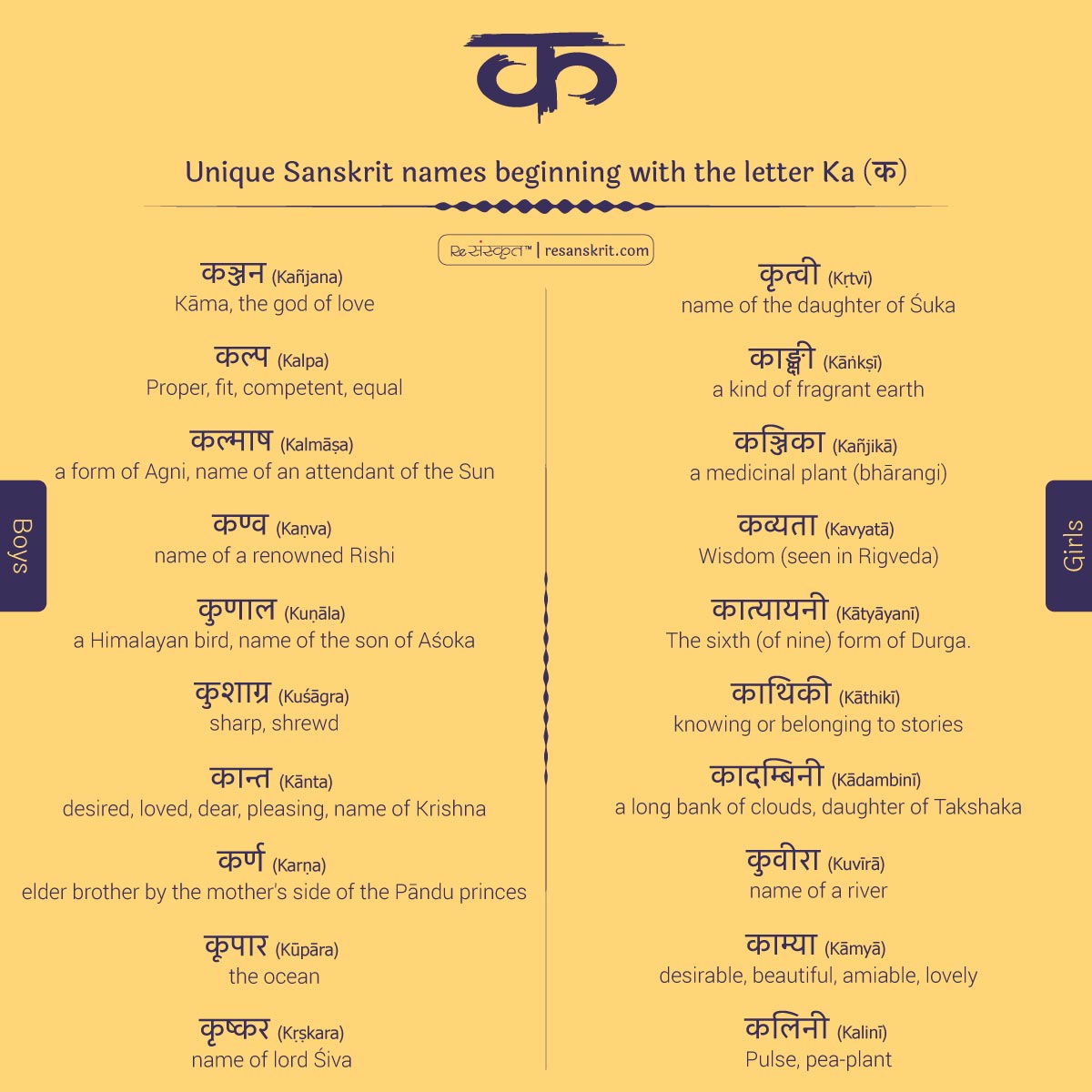

Additional unique Sanskrit names starting with the letter K (क)
Names for boys
- Kaca (कच): Name of the son of Bṛhaspati
- Kañjaka (कञ्जक) / Kañjala(कञ्जल) : the bird Gracula Religiosa (i.e, the myna)
- Kañjana (कञ्जन): Kāma, the god of love
- Kañjāra (कञ्जार): a peacock, an elephant, a Munī, the sun,name of Brahmā
- Kaṭamarda (कटमर्द) / Kaṭāṭaṅka (कटाटङ्क): Name of Śiva
- Kaṭavraṇa (कटव्रण): Name of Bhima
- Kaṭhiñjara (कठिञ्जर): name of Tulasi
- Kaṭha (कठ): name of a sage (a pupil of Vaiśaṃpāyana and founder of a branch of the Yajurveda, called after him)
- Kaṇāda (कणाद): name given to the author of the Vaiśeṣika branch of the Nyāya philosophy (as teaching that the world was formed by an aggregation of atoms; he is also called Kaśyapa, and considered as a Devarśi
- Kaṇva (कण्व) : name of a renowned Ṛṣi (author of several hymns of the Ṛgveda
- Kanakavarṇa (कनकवर्ण): Name of a King (supposed to be former manifestation of Śākya muni
- Kanakaśakti : name of Kārtikeya
- Kandoṭa (कन्दोट): The blue lotus
- Kandarpa (कन्दर्प) : Name of Kāma - the god of love, a particular Rāga
- Kapi (कपि): Name of Viśṇu or Kṛṣna, name of the sun
- Kapila (कपिल): An ancient sage considered to be the founder of the Sāṃkhya philosophy
- Karaṇa (करण) : a helper, companion (Atharvaveda)
- Karṇa (कर्ण) : name of a king of Aṅga (and elder brother by the mother's side of the Pāṇḍu princes, being the son of the god Sūrya by Pṛthā or Kuntī, before her marriage with Pāṇḍu ; afraid of the censure of her relatives, Kuntī deserted the child and exposed it in the river, where it was found by a charioteer named Ādhiratha and nurtured by his wife Radhā ; hence Karna is sometimes called Sūtaputra or Sūtaja, sometimes Rādheya.
- Kardama (कर्दम) : name of Prajāpatī
- Kalādhara (कलाधर): Name of Śiva
- Kalinda (कलिन्द) : The sun, name of a mountain on which river Yamunā rises
- Kalpa (कल्प): Proper, fit, competent, equal, One of the six Vedāṅgas (that which prescribes the ritual and gives rules for ceremonial or sacrificial acts)
- Kalmāṣa (कल्माष) : a form of Agni, name of an attendant of the Sun
- Kalyāṇa (कल्याण): beautiful, agreeable, illustrious, noble, generous, excellent, virtuous, good ; a particular Rāga (sung at night) ; name of a Gandharva
- Kalhaṇa (कल्हण): name of the author of the book Rājataraṅgiṇī
- Kavi (कवि) : gifted with insight, intelligent, knowing, enlightened, wise, sensible, prudent, skilful, cunning; a thinker, intelligent man, man of understanding, leader ; a wise man, sage, seer, prophet; a singer, poet
- Kavikamala (कविकमल): Lotus seat of poets, name of Brahmā
- Kavikratu (कविक्रतु ): having insight of a wise man (names of Agni and Soma in the Ṛgveda)
- Kavicandra (कविचन्द्र): name of various authors
- Kaviṭṭa (कविभट्ट): name of a poet
- Kavīndu (कवीन्दु): moon of poets, name of Vālmīki
- Kavīndra (कवीन्द्र) : prince among poets
- Kavīśvara (कवीश्वर): lord among poets, name of a poet
- Kaśyapa (कश्यप): descendent of Marīci and the author of several hymns of Ṛgveda
- Kaśyapanandana (कश्यपनन्दन): son of a Kaśyapa, name of Garuḍa (name of the bird of Viṣṇu.
- Kaśyapatīrtha (कश्यपतीर्थ): name of a tīrtha
- Kācima (काचिम) : a sacred tree (growing near a temple)
- Kātyāyana (कात्यायन): name of the author of several treatises on ritual, grammar; also author of the Vārttikas or critical annotations on the aphorisms of Pāṇini, of the Yajurveda Prātiśākhya, and of the Śrauta-sūtras
- Kānta (कान्त) : desired, loved, dear, pleasing, agreeable, lovely, beautiful, name of Kṛṣna
- Kārtavīrya (कार्तवीर्य): son of Kṛtavīrya/ name of Arjuna (a prince, killed by Paraśurāma), Mahābhārata ; name of one of the Cakravartins (emperors of the world in Bhrārata-varsha)
- Kārttikeya (कार्त्तिकेय): name of a son of Śiva and Pārvatī (popularly regarded as God of war)
- Kāśīnātha (काशीनाथ): Lord of Benaras, name of Śiva
- Kāhalī (काहली): name of Śiva
- Kiraṇa (किरण): a ray of the beam of the light of the sun or the moon
- Kirāta (किरात): name of Śiva (as a mountaineer opposed to Arjuna described in Bhāravi’s poetry Kirātārjunīyam)
- Kiṛīṭa (किरीट) : a diadem, crest, any ornament used as a crown, tiara; name of a metre of four lines each consisting of 24 syllables
- Kumodaka (कुमोदक): name of Viṣṇu
- Kuṇāla (कुणाल) : a kind of a bird (living in the Himālaya), name of the son of Aśoka
- Kutsa (कुत्स): name of a Ṛśi, author of several hymns of the Ṛgveda
- Kunālika (कुनालिक): the Indian cuckoo
- Kuvaya (कुवय): a kind of bird
- Kuvala (कुवल) : a pearl
- Kuśa (कुश): sacred grass used in certain, religious ceremonies; son of Rāma
- Kuśāgra (कुशाग्र) : sharp, shrewd
- Kuśala (कुशल) : right, proper, suitable, good; competent, able, skilful, clever
- Kuśika (कुशिक): name of the father (or grandfather) of Viśvāmitra
- Kūpāra (कूपार) : the ocean
- Kṛṣkara (कृष्कर): name of Śiva
- Kedāra (केदार) : a field of meadow, name of Śiva as worshipped in the Himālayas
Names for girls
- Kañjikā (कञ्जिका) : the medicinal plant Siphonantus Indica (i.e bhārangi)
- Kaṭhaśruti (कठश्रुति): name of an upaniśad (kaṭhopaniśad)
- Kanakalatā (कनकलता )/ Kanakalatikā: (कनकलतिका): Name of a plant
- Kanakavāhinī (कनकवाहिनी ): “gold stream”, name of a river
- Kanā (कना)/ Kanī (कनी): a girl, a maiden (Ṛgveda)
- Kandirī (कन्दिरी) : the sensitive plant (Marathi-लाजाळू , Hindi-छुइमुइ)
- Kapilā (कपिला): Name of one of the daughters of Dakṣa
- Kāmanā (कामना): Wishing for, desirous, libidinous, beautiful, desirable, lovely
- Kamalā (कमला): Pale red, rose coloured, name of Lakṣmī
- Kamalavadanā (कमलवदना): Lotus-faced
- Kamalinī (कमलिनी): the lotus plant
- Kampikā (कम्पिका): a kind of musical instrument
- Kambhārī (कम्भारी): name of a medicinal tree
- Karatoyā (करतोया): Name of a river in North East of Bengal [said to have originated from the water poured in the hands of Śiva at his marriage with Pārvatī and thrown by Him on the ground]
- Karuṇā (करुणा): compassionate
- Kalā (कला) / Kalikā (कलिका): One-sixteenth of the moon’s diameter
- Kalinī (कलिनी) : Pulse, pea-plant
- Kalpanā (कल्पना): creating in the mind, feigning, assuming anything to be real, fiction,
- Kalmāṣī (कल्माषी) : name of the speckled cow of Jamadagni granting all desires, Name of the river Yamunā
- Kalyāṇī (कल्याणी): beautiful, agreeable, illustrious, noble, generous, excellent, virtuous, good; a cow
- Kavitā (कविता): poetry, ornate style
- Kavyatā (कव्यता) : Wisdom (seen in Ṛgveda)
- Kāṅkṣā (काङ्क्षा) : wish, desire, inclination
- Kāṅkṣī (काङ्क्षी) : a kind of fragrant earth
- Kāñcanī (काञ्चनी): made of / consisting of gold
- Kātyāyanī (कात्यायनी) : The sixth (of nine) form of Durga, name of one of the two wives of Yajñavalkya
- Kāthikī (काथिकी) : knowing stories belonging to stories
- Kādambinī (कादम्बिनी) : a long line or bank of clouds, name of a daughter of Takshaka, Virac
- Kādambarī (कादम्बरी) : the female of the Kokilā or Indian cuckoo; daughter of Citraratha and Madirā ; of a celebrated story by Bāṇa named after her.
- Kānaḍā (कानडा): a particular Rāgiṇī
- Kāpī (कापी): name of a river
- Kāminī (कामिनी): desirous, longing after; loving, fond, impassioned; name of a metre consisting of four lines of six syllables each.
- Kāmyā (काम्या) : desirable, beautiful, amiable, lovely, agreeable
- Kārotī (कारोती): name of a river
- Kārttikī (कार्त्तिकी): the night of full moon in the month Kārttika
- Kārpaṇī (कार्पणी) : gladness
- Kālindī (कालिन्दी): name of a wife of Kṛṣṇa, name of the wife of Asita and the mother of Sāgara
- Kāśī (काशी): Benaras, name of the wife of Sudeva and the mother of Supārśva
- Kujā (कुजा) : daughter of the earth, Sītā
- Kuṇdalikā (कुण्डलिका): name of a metre in Prakṛit poetry; a circle
- Kuntī (कुन्ती): name of Pṛthā, wife of King Paṇḍu
- Kundinī (कुन्दिनी): assemblage of jasmines
- Kuvīrā (कुवीरा) : name of a river
- Kuvalī (कुवली) : water-lily (specially the blue variety, the flower of which blooms at night)
- Kuhā (कुहा) : name of Durgā
- Kṛti (कृति) : the act of doing, making, performing, manufacturing, composing
- Kṛtvī (कृत्वी) : name of the daughter of Śuka
- Kṛttikā (कृत्तिका) : name of a constellation
- Kṛpā (कृपा): tenderness, compassion
- Ketakī (केतकी): the kewra flower (screw-pine)
Unique Sanskrit names starting with the letter J (ज)
Names for boys
- Jakuṭa (जकुट): the flower of the eggplant, the Malaya mountains
- Jagat (जगत्): the world
- Jagatpati (जगत्पति): the lord of the world
- Jagadādija (जगदादिज): name of Śiva
- Jagadīśa (जगदीश) / Jagadīśvara (जगदीश्वर): he lord of the world, Brahmā, Viṣṇu, Śiva
- Jagannātha (जगन्नाथ): world-lord, Viṣṇu or Kṛṣṇa
- Janamejaya (जनमेजय): causing men to tremble, name of the celebrated king to whom Vaiśampāyana narrated the Mahābhārata (great grandson of Arjuna)
- Janayiṣṇu (जनयिष्णु): a progenitor
- Jambhala (जम्भल): name of a spirit, god of wealth (Buddhist tradition)
- Jamadagni (जमदग्नि): name of a Ṛṣi, descendent of Bhṛgu, father of Parśurāma
- Jaya (जय): conquering, winning, conquest, victory, triumph, winning; a kind of flute (in music)
- Jayagupta (जयगुप्त) name of a poet
- Jayaskandha (जयस्कन्ध): name of the minister of Yudhiṣṭhira
- Jayendra (जयेन्द्र): a king from Kashmir
- Jayanta (जयन्त): victorious
- Jayiṣṇu (जयिष्णु): victorious
- Jitākṣara (जिताक्षर): one who has mastered his letters, ‘writing well’
- Jitamitra (जितमित्र): one who has conquered his enemies, triumphant, Viṣṇu
- Jitendra (जितेन्द्र): the one who has conquered his senses
- Jijñāsu (जिज्ञासु): desirous of knowing
- Jituma (जितुम): the sign Gemini
- Jina (जिन): victorious (an Arhat, the chief saint of the Jainas)
- Jinavallabha (जिनवल्लभ): name of a famous Jaina author
- Jinadhāra (जिनधार): name of Bodhisattva
- Jinendra (जिनेन्द्र): a Jaina saint, name of a grammarian
- Jineśa (जिनेश): an Arhat
- Jiṣṇu (जिष्णु): victorious, triumphant, winning
- Jīmuta (जीमूत): a cloud, nourisher, sustainer
- Jīva (जीव): the principle of life, vital breath
- Jīviteśa (जीवितेश): Yama, the sun
Names for girls
- Jaṇkarī (जङ्करी): a kind of dance
- Jagatī (जगती): name of a metre
- Jagadambā (जगदम्बा): the mother of the world, name of Durgā
- Jagadātrī (जगदात्री): Sarasvatī
- Janī (जनी): kind of a fragrant plant
- Jantulā (जान्तुला): wild sugarcane
- Jambhalikā (जम्भलिका): a kind of a song
- Jayadurgā (जयदुर्गा): form of Durgā
- Jayalekhā (जयलेखा): a record of victory
- Jayaśrī (जयश्री): goddess of victory
- Jāgṛti (जागृति): awareness, awakening, vigilance
- Jānakī (जानकी): daughter of Janaka, name of Sītā
- Jāhnavī (जाह्नवी): the Gaṇgā
- Jigīṣā (जिगीषा): desire if conquering or being victorious
- Jigiṣitā (जिगिषिता): wished to be obtained
- Jitā (जिता): won, acquired, conquered
- Jiti (जिति): gaining, obtaining, victory
- Jitvarī (जित्वरी): overcoming, the city of Benaras
- Jigīṣā (जिगीषा): the will to live
- Jighṛkṣā (जिघृक्षा): wish or intention to take or seize
- Jijīviṣā (जिजीविषा): desire to live
- Jijñāsā (जिज्ञासा): desire of knowing
- Jihirṣā (जिहिर्षा): desire of seizing
- Jīvā (जीवा): living, existing, alive, healthy
- Jīvadā (जीवदा): life-giver, a physician
- Jīvikā (जीविका): to make a livelihood
- Jīvitāśā (जीविताशा): hope of life, wish for life
- Jivyā (जिव्या): life
- Jūtikā (जूतिका): a kind of camphor
- Joṣikā (जोषिका): a cluster of buds
Unique Sanskrit names starting with the letter G (ग)
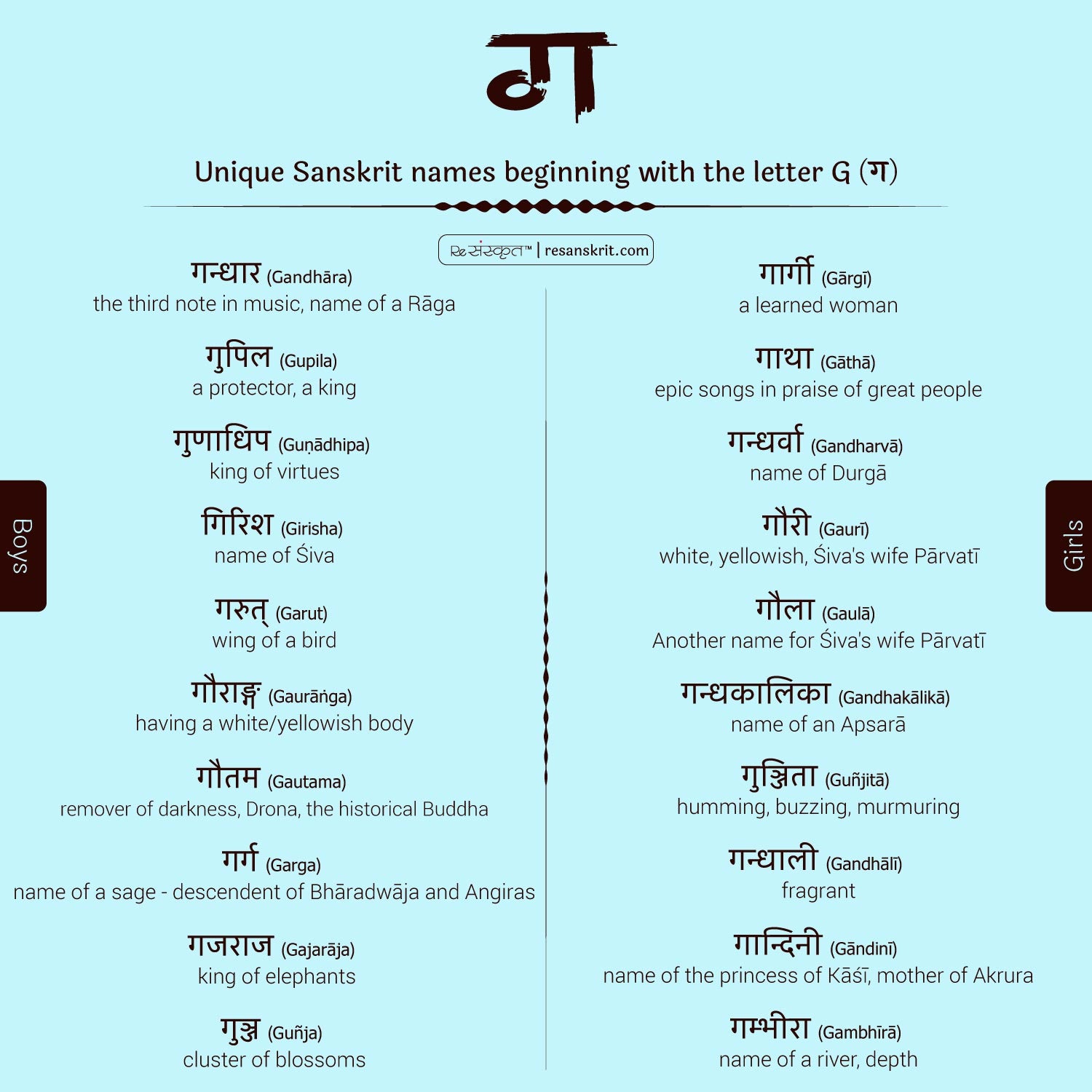
Additional unique Sanskrit names starting with the letter G (ग)
Names for boys
- Gaganagañja (गगनगञ्ज): name of Bodhisattva
- Gaṅgādhara (गङ्गाधर): receiver of Gaṅgā - the ocean, name of Śiva
- Gajarāja (गजराज): king of elephants
- Gañja (गञ्ज): a treasury, a jewel room
- Gada (गद): name of son of Vasudeva and the younger brother of Kṛṣṇa, name of a musical instrument, name of a constellation
- Gadāmbara (गदाम्बर): a cloud
- Gandhāra (गन्धार): the third note in music, name of a Rāga
- Garut (गरुत्): wing of a bird
- Garga (गर्ग): name of a sage - descendent of Bhāradwāja and Aṅgiras
- Garga (गर्गर): a kind of a musical instrument
- Gahana (गहन): deep, dense, inexplicable
- Gāṇḍiva (गाण्डीव): name of the bow of Arjuna
- Girika (गिरिक): name of Śiva
- Girisha (गिरिश): name of Śiva
- Guñja (गुञ्ज): bunch, bundle or cluster of blossoms
- Guṇāḍhya (गुणाढय): name of the famous author of Bṛhatkathā
- Guṇādhipa (गुणाधिप): king of virtues, name of a king
- Guṇeśvara (गुणेश्वर): lord of virtues, name of the mountain Citrakūṭa
- Gupila (गुपिल): a protector, a king
- Guru (गुरु): great, large, valuable, important, venerable, respectable, a spiritual parent or preceptor
- Gaurāṅga (गौराङ्ग): having a white/yellowish body
- Gaurava (गौरव): glory, dignity, respect
- Gautama (गौतम): remover of darkness, Droṇa, the historical Buddha
- Gaurīnātha (गौरीनाथ): name of Śiva
- Grāmika (ग्रामिक): rustic (in music), chromatic
Names for girls
- Gaganasindhu (गगनसिन्धु): the heavenly Gaṅgā
- Gaṅgakā (गङ्गका): the river Gaṅgā
- Gaṅgā (गङ्गा): swift-goer, personified as the eldest daughter of Himavat and Menā, wife of Śantanu and the mother of Bhiśma
- Gaṇḍinī (गण्डिनी): name of Durgā
- Gaṇḍakī (गण्डकी): a north river flowing into Gaṅgā
- Gadi (गदि): speech
- Gandhakālikā (गन्धकालिका): name of an Apsarā
- Gandhakālī (गन्धकाली): name of the mother of poet Vyāsa
- Gandharvā (गन्धर्वा): name of Durgā
- Gandhālī (गन्धाली): fragrant
- Gambhīrā (गम्भीरा): name of a river, depth
- Garmotikā (गर्मोतिका): a kind of a special grass
- Gahanā (गहना): ornament
- Gāthā (गाथा): epic songs and particularly those in praise of men and heroes
- Gāyatrī (गायत्री): name of a metre
- Gāndinī (गान्दिनी): name of the princess of Kāśī, mother of Akrura (seen in Harīvaṃśa)
- Gārgī (गार्गी): name of a learned woman
- Girā (गिरा): speech, voice
- Gītā (गीता): a song, sacred song or poem, religious doctrines declared in metrical form by an inspired sage e.g Agastya-Gītā, Bhagavadgītā [often called Gītā]
- Gītikā (गीतिका): a short poem
- Guñjā (गुञ्जा) / Guñjitā (गुञ्जिता): humming, buzzing, murmuring
- Guḍikā (गुडिका): a pearl, cocoon of a silkworm,
- Gṛiṣṭhi (गृष्ठि): a young cow which has only one calf
- Gaurī (गौरी): white, yellowish, reddish, pale red, brilliant Goddess, Śiva's wife Pārvatī
- Gaulā (गौला): Śiva's wife Pārvatī
Unique Sanskrit names starting with the letter R (र)
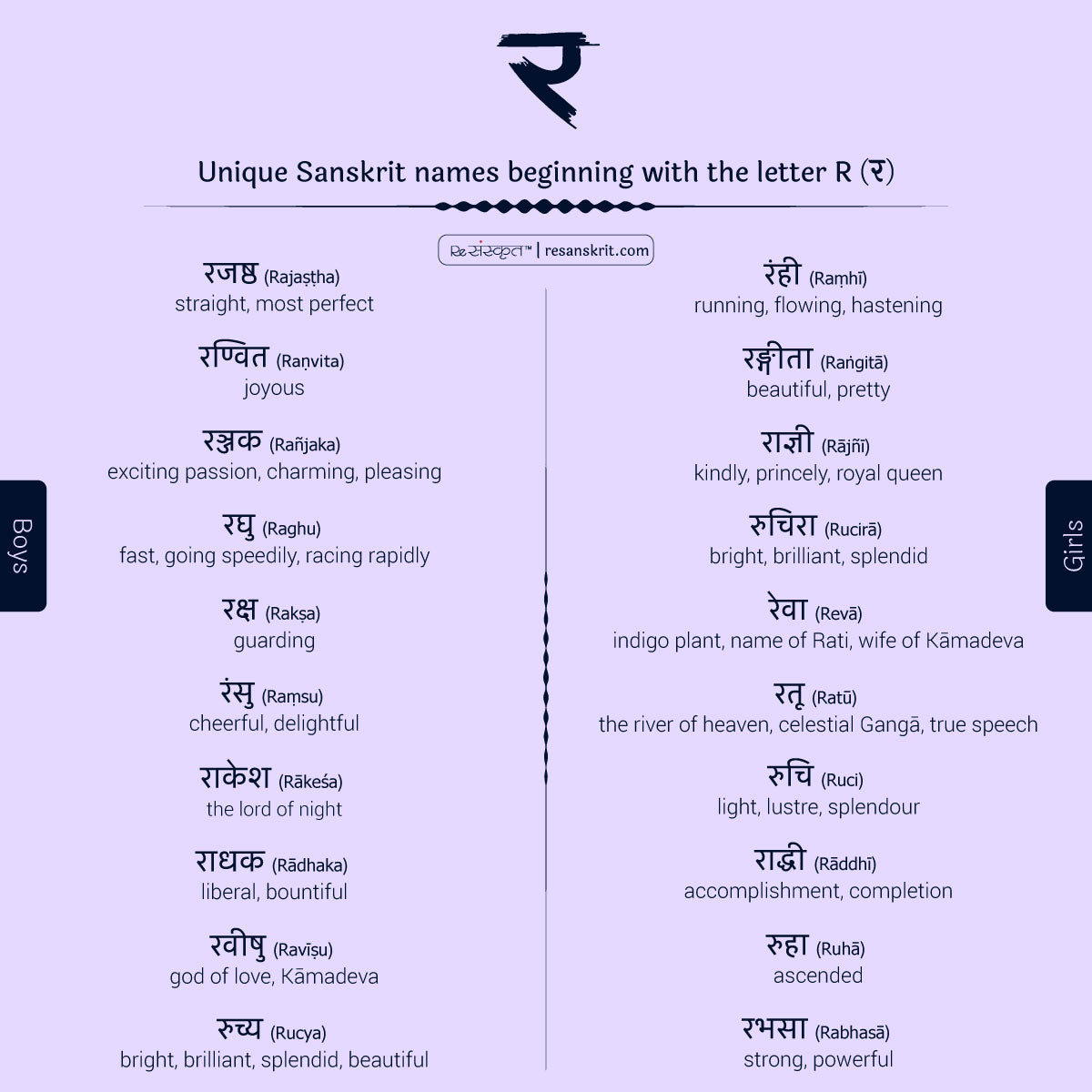
Additional unique Sanskrit names starting with the letter R (र)
Names for boys
- Raṃsu (रंसु): cheerful, delightful
- Rakṣa (रक्ष): guarding
- Rakṣita (रक्षित): guarded, protected
- Raghu (रघु): hastening, going speedily, racing rapidly, name of the ancestor of Rāma
- Racita (रचित): performed, arranged
- Rajaṣṭha (रजष्ठ): straight, most perfect
- Rajas (रजस): silver, made of silver
- Rajata (रजत): whitish, silver colored
- Rajasānu (रजसानु): a cloud
- Rañjaka (रञ्जक): exciting passion/ love, charming, pleasing
- Rajanīsha (रजनीश): god of night, moon
- Raṇa (रण): delight. pleasure, gladness, joy (in Ṛgveda)
- Raṇvita (रण्वित): joyous
- Ratnākara (रत्नाकर): the sea, ocean
- Ratnendra (रत्नेन्द्र): precious
- Rabhiṣṭha (रभिष्ठ): most violent, strong
- Ripsu (रिप्सु): wishing to seize
- Ramaṇa (रमण): pleasing, charming
- Ramra (रम्र): name of the charioteer of the sun
- Rallaka (रल्लक): species of a stag/deer
- Ravi (रवि): a particular form of sun, an orange
- Raviṣṭha (रविष्ठ): loved by sun
- Ravīṣu (रवीषु): god of love i.e Kāmadeva
- Rasāla (रसाल): the mango tree
- Rasika (रसिक): tasteful, elegant
- Rākeśa (राकेश): the lord of night
- Rāghava (राघव): a descendent of Raghu
- Rāja (राज): a sovereign, a king
- Rājaka (राजक): illuminating, splendid
- Rājan (राजन्): a king, sovereign, prince, chief
- Rājita (राजित): illuminated, resplendent, brilliant, adorned
- Rādhaka (राधक): liberal, bountiful
- Rādheya (राधेय): name of Karṇa
- Rāma (राम): pleasing, charming, lovely, an Avatāra of Viṣṇu
- Ridhama (रिधम): spring
- Rīra (रीर): name of Śiva
- Rucika (रुचिक): a kind of ornament
- Rucya (रुच्य): bright, brilliant, splendid, beautiful
- Rudra (रुद्र): related to Śiva
- Roca (रोच): shining, radiant, name of a Rāga in music
- Rocaka (रोचक): brightening, enlightenment
- Rocana (रोचन): bright, shing, radiant
- Ropaṇaka (रोपणक): kind of bird
- Rohita (रोहित): name of the sun
- Rohiśa (रोहिश): a kind of deer
Names for girls
- Raṃhatī (रंहती): speed, velocity
- Raṃhī (रंही): running, flowing, hastening
- Rakṣā (रक्षा): protection, duty
- Racanā (रचना): arrangement, management
- Raktā (रक्ता): coloured, dyed
- Raṅgitā (रङ्गीता): beautiful, pretty
- Rajanī (रजनी): night
- Rajayitrī (रजयित्री): a female painter
- Rañjā (रञ्जा): a kind of drum
- Rañjanī (रञ्जनी): pleasing, charming
- Rañjitā (रञ्जिता): illuminated, affected, charmed, delighted
- Ratū (रतू): the river of heaven, celestial Gaṅgā, true speech
- Ratnādevī (रत्नादेवी): name of a princess
- Ratnojjvalā (रत्नोज्ज्वला): shining with pearls
- Rabhasā (रभसा): strong, powerful
- Rambhā (रम्भा): a celebrated Apsaras, wife of Nala-Kubera
- Ramā (रमा): to delight, make happy, name of Lakṣmi, goddess of fortune
- Ratandhrī (रतन्ध्री): mist, fog
- Ratī (रती): pleasure, enjoyment, delight
- Ratikā (रतिका): a kind of Śruti in music
- Ramaṇī (रमणी): a beautiful, young woman
- Ramayantikā (रमयन्तिका): a dancing girl
- Ralā (रला): a species of bird
- Raśanā (रशना): a ray of light, a girdle
- Rākhāḍī (राखाडी): a particular kind of ornament
- Rāgiṇī (रागिणी): a melody
- Rādhikā (राधिका)/Rādhā (राधा): lover of Kṛṣṇa, prosperous
- Rājanī (राजनी): made of silver
- Rājikā (राजिका): a streak, line, row
- Rājñī (राज्ञी): kindly, princely, royal queen
- Rāddhī (राद्धी): accomplishment, perfection, completion
- Rāvī (रावी): name of a river, person of brilliant character
- Riṭi (रिटि): a musical instrument
- Rīti (रीति): usage, custom, practice, method
- Rītikā (रीतिका): brass
- Rukmiṇī (रुक्मिणी): species of plant, secret lover of Kṛṣṇa (later wife)
- Ruci (रुचि): light, lustre, splendour
- Rucitā (रुचिता): bright, brilliant, glittering
- Rucirā (रुचिरा): bright, brilliant, splendid, beautiful
- Rubhetī (रुभेती): fog, vapour
- Ruhā (रुहा): ascended
- Ruharuhikā (रुहरुहिका): desire
- Rekhā (रेखा): a streak, line
- Reṭi (रेटी): sound of fire
- Reṇukā (रेणुका): a particular medicinal substance, wife of Jamadagni and mother of Parśurāma
- Revā (रेवा): indigo plant, name of Rati, wife of Kāmadeva
Unique Sanskrit names starting with the letter S (स)
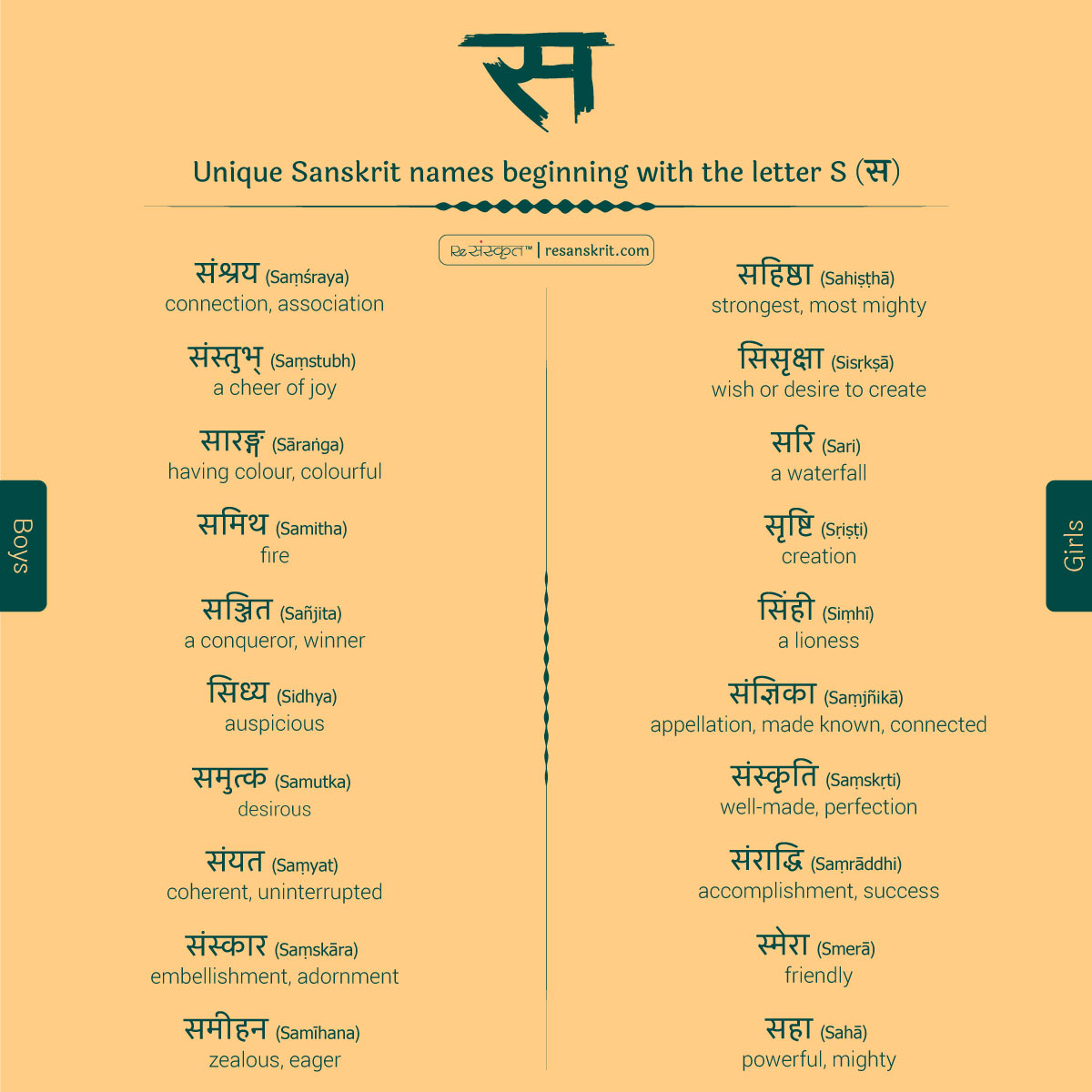
Additional unique Sanskrit names starting with the letter S (स)
Names for boys
- Saṃkalpa (सङ्कल्प): decided with determination
- Saṃyat (संयत): coherent, uninterrupted
- Saṃyama (संयम): restraint, control over senses
- Saṃvega (संवेग): excitement
- Saṃśraya (संश्रय): connection, association
- Saṃskāra (संस्कार): accomplishment, embellishment, adornment, purification, cleansing
- Saṃstubh (संस्तुभ्): a shout of joy
- Sakṣama (सक्षम): able, endure
- Saṅketa (सङ्केत): intimation, hint
- Saṅgrāma (सङ्ग्राम): battle, war, fight, combat
- Sañcaya (सञ्चय): collection
- Sañjaya(सञ्जय): completely victorious, triumphant (in Ṛgveda)
- Sañjita (सञ्जित) a conqueror, winner
- Sañjiva (सञ्जीव): the act of revival
- Sandāva (सन्दाव): flight
- Sandeśa (सन्देश): communication of intelligence, message, information
- Samanvaya (समन्वय): connected sequence or consequence, conjunction
- Samavakāra (समवकार): a kind of higher Rūpaka or drama
- Samādiṣṭa (समादिष्ट): assigned, indicated, directed, commanded
- Samitha (समिथ): fire
- Samīra (समीर): air, breeze, wind
- Samīhana (समीहन): zealous, eager
- Samukṣita (समुक्षित): sprinkled
- Samutka (समुत्क): desirous
- Samutkarṣa (समुत्कर्ष): self-elevation
- Samudāgama (समुदागम): full or complete knowledge
- Samupakrama (समुपक्रम): commencement
- Sammegha (सम्मेघ): the cloudy season
- Sarjura (सर्जुर): a day
- Sahira (सहिर): a mountain
- Sahiṣṇu (सहिष्णु): patient, forbearing
- Sāgara (सागर): the ocean
- Sāttvika (सात्त्विक): spirited, vigorous, energetic
- Sānanda (सानन्द): having joy or happiness, joyful, glad,delighted with
- Sāraṅga (सारङ्ग): having colour
- Sārāla (साराल): the sesamum plant
- Sārka (सार्क): the sun, sunny
- Sārthaka (सार्थक): having meaning, significant, important
- Sāhila (साहिल): guide, leader
- Sikṣya (सिक्ष्य): crystal, glass
- Siddhārtha (सिद्धार्थ): the one who has attained his object/aim successfully, name of Gautama Buddha
- Siddhānta (सिद्धान्त): final end/aim
- Sidhya (सिध्य): auspicious
- Sitinaka (सितिनक): pulse
- Sīraka (सीरक): a plough
- Sudarṣana (सुदर्शन): good-looking, beautiful, handsome, name of Śiva, name of the discus of Viṣṇu
- Sunandana (सुनन्दन): name of Kṛṣṇa
- Sundara (सुन्दर): beautiful, handsome, lovely
- Suvihita (सुविहित): well done or performed
- Suṣānta (सुशान्त): very calm and placid (like water)
- Suśruta (सुश्रुत): very famous, very famous and celebrated medical practitioner, the father of surgery
- Sūrya (सूर्य): the sun
Names for girls
- Saṃyuktā (संयुक्ता): conjoined, together, a kind of metre
- Saṃrāddhi (संराद्धि): accomplishment, success
- Saṃvidhā (संविधा): mode of life
- Saṃsthā (संस्था): to stand together, hold together
- Saṃskṛti (संस्कृति): preparation, perfection
- Saṃhitā (संहिता): conjunction, connection, union, the text of the Vedas
- Saṃkrānti (संक्रान्ति): going from one place to the other, a traditional festival
- Saṃjñikā (संज्ञिका): appellation, made known, connected
- Samadu (समदु): a daughter
- Samaṣṭi (समष्टि): attainment
- Samākhyā (समाख्या): confederation
- Samānikā (समानिका): a kind of metre
- Samāpatti (समापत्ति): coming together, meeting, encountering
- Samīkṣā (समीक्षा): to look at or inspect thoroughly, investigate closely
- Samīhā (समीहा): wish, desire
- Samucitā (समुचिता): delighted, liked
- Sammārṣṭi (सम्मार्ष्टि): cleansing, purification
- Sarasvatī (सरस्वती): name of a river (celebrated in Ṛgveda and held to be a goddess)
- Sari (सरि): a waterfall
- Sarvikā (सर्विका): all, every, whole, entire, universal
- Sarvatā (सर्वता): all-sided
- Sarṣīkā (सर्षीका): a kind of metre
- Sahā (सहा): powerful, mighty
- Sahiṣṭhā (सहिष्ठा): strongest, most mighty
- Sākūtā (साकूता): intentional, having meaning
- Sāgarikā (सागरिका) a woman born in the ocean
- Sādhikā (साधिका): accomplishing, fulfilling, completing, perfecting
- Sādhanā (साधना): leading straight to a goal, guiding well
- Sānikā (सानिका): a flute
- Sāmūnā (सामूना): a black coloured deer
- Sāmici (सामिचि): praise
- Sāraṅgī (सारङ्गी): a kind of spotted doe or antelope
- Sāvitrī (सावित्री): relating or belonging to the sun
- Sāverī (सावेरी): a particular kind of Rāgiṇī
- Siṃhikā (सिंहिका): daughter of Dakṣa
- Siṃhī (सिंही): a lioness
- Siddhi (सिद्धि): accomplishment, performance, fulfilment, complete attainment (of any object), success
- Silācī (सिलाची): a particular medicinal plant
- Sisṛkṣā (सिसृक्षा): wish or desire to create
- Sītā (सीता): the track or line of a ploughshare, personified and worshipped as a goddess; wife of Rāma and daughter of Janaka
- Simāntikā (सिमान्तिका): a kind of ruby
- Sīmā (सीमा): boundary
- Sudikṣā (सुदिक्षा): beautiful consecration; name of Lakṣmī
- Sudh (सुधा): nectar of flowers
- Subuddhi (सुबुद्धि): good understanding
- Surabhi (सुरभि): sweet smelling, fragrant
- Surandalā (सुरन्दला): name of a river
- Suvarṇā (सुवर्णा): of a good or beautiful colour, brilliant in hue, bright, golden, yellow
- Suślokā (सुश्लोका): well sounding, pleasing
- Sūnṛtā (सूनृता): pleasant and true (speech); gladness, joy
- Sṛiṣṭi (सृष्टि): creation
- Smiti (स्मिति) / Smitā (स्मिता): smiling, laughter
- Smerā (स्मेरा): friendly
Unique Sanskrit names starting with the letter Sh (श)
Names for boys
- Śaṃsa (शंस): recitation, invocation, praise
- Śaṃsatha (शंसथ): conversation
- Śakra (शक्र): strong, powerful, mighty (Indra)
- Śakvan (शक्वन्): powerful, able, mighty
- Śagma (शग्म): powerful, mighty
- Śakunta (शकुन्त): the blue jay
- Śaṅkhaka (शङ्खक): the conch shell
- Śaciṣṭha (शचिष्ठ): most powerful
- Śama (शम): tranquility, calmness
- Śamatha (शमथ): quiet, tranquility
- Śamaha (शमह): a quiet place, hermitage
- Śamiṣṭha (शमिष्ठ): most active, busiest
- Śaṃkara (शङ्कर): causing prosperity, auspiciousness
- Śambhu (शम्भु): existing for happiness
- Śarva (शर्व): name of Śiva
- Śaraṇa (शरण): shelter, place of refuge
- Śarad (शरद्): autumn
- Śaracchandra (शरच्चन्द्र): autumnal moon
- Śarkura (शर्कुर): young, tender
- Śardha (शर्ध): defiant, bold
- Śardhya (शर्ध्य): bold, strong
- Śalahaka (शलहक): the wind
- Śalya (शल्य): dart, spear
- Śalaṇga (शलङ्ग): a king, sovereign
- Śaśāṇka (शशाङ्क): hare-marked i.e the moon
- Śaṃtanu (शन्तनु): father of Bhīṣma
- Śaraṅgarava (शारङ्गरव): disciple of Kaṇva muni
- Śārdula (शार्दूल): a lion, a tiger
- Śālita (शालित): shining with, beautified
- Śikhara (शिखर): a mountain peak
- Śithira (शिथिर): flexible
- Śipiviṣṭa (शिपिविष्ट): pervaded by rays
- Śipita (शिपित): superfluous
- Śirīṣa (शिरीष): rain tree
- Śilamba (शिलम्ब): a sage
- Śukra (शुक्र): bright, resplendent
- Śukṣi (शुक्षि): air, wind
- Śuciya (शुचिय): to become clear, pure
- Śuṭira (शुटीर): a hero
- Śura (शूर): lion, hero
- Śuṣṇa (शुष्ण): the sun, fire
- Śekhara (शेखर): crown of the head
- Śodhana (शोधन): purifying, cleansing
- Śobhaka (शोभक): brilliant, beautiful
- Śobhita (शोभित): splendid, beautiful
- Śaunaka (शौनक): author of Ṛgvedic Prātiśākhya
- Śyāma (श्याम): dark coloured, name of Kṛṣṇa
- Śrāvaṇa (श्रावण): relating to ear, name of a Muni
- Śraviṣṭha (श्रविष्ठ): most famous
- Śreyas (श्रेयस्): more splendid, beautiful, excellent
Names for girls
- Śaṃsitā (शंसिता): praised, celebrated
- Śasti (शस्ति): praise, hymn
- Śakti (शक्ति): power, ability, strength, might
- Śakyā (शक्या): possible, practicable, capable
- Śakvarī (शक्वरी): name of a particular metre
- Śakuntalā (शकुन्तला): name of the daughter of Viśvāmitra and Menakā, said to be left by Menakā at birth and was fed by birds until Kaṇva muni found her
- Śaṅkhinī (शङ्खिनी): the mother of pearl
- Śacī (शचि)/Śacikā (शचिका): wife of Indra
- Śadhī (शधी): a kind of a plant
- Śatvarī (शत्वरी): night
- Śadvalā (शद्वला): name of a river
- Śamanī (शमनी): calming, night
- Śamitā (शमिता): rice powder
- Śaṃkarī (शङ्करी): wife of Śiva
- Śarvaṇī (शर्वणी): wife of Śiva
- Śaraṇyā (शरण्या): offering shelter
- Śaracchandrikā (शरच्चन्द्रिका): autumnal moonshine
- Śaratī (शरती): lovely like autumn
- Śarkarī (शर्करी): a river
- Śarmiṣṭhā (शर्मिष्ठा): most fortunate, one of the wives of Yayāti
- Śarvarī (शर्वरी): starlit night
- Śarṣikā (शर्षिका): a kind of metre
- Śalalī (शलली): the quill of a porcupine used to apply collyrium
- Śalākā (शलाका): any small stake or stick
- Śavāsī (शवासी): the strong one, name of the mother of Indra
- Śaśī (शशी): a digit of the moon
- Śānti (शान्ति): tranquility, peace, quiet
- Śālmalī (शाल्मली): silk cotton tree
- Śāvirī (शाविरी): a particular Rāga
- Śāśvatī (शाश्वती): eternal
- Śikhā (शिखा): a tuft or loft of hair, crest of a peacock
- Śilpikā (शिल्पिका): a kind of drama
- Śiśayā (शिशया): liberal
- Śītikā (शीतिका): cool
- Śīlā (शीला): habit, custom, practice, conduct
- Śukti (शुक्ति): shining bright, pearl oyster
- Śuklā (शुक्ला): bright light
- Śucikā (शुचिका): name of Apsaras, pure, sacred, virtuous
- Śucitā (शुचिता): pure, clean
- Śutudrī (शुतुद्री): the Sutlej river (name in Ṛigveda)
- Śuśrūṣā (शुश्रूषा): desire to hear, reverence, obedience
- Śuṣmā (शुष्मा): fragrant, strong, bold
- Śephālī (शेफाली): fragrant
- Śemuṣī (शेमुषी): understanding, intellect, wisdom
- Śobhā (शोभा): splendour, brilliance
- Śolī (शोली): yellow turmeric
- Śraddhā (श्रद्धा): faith
- Śruti (श्रुति): hearing, listening, Vedas
- Śruṣṭi (श्रुष्टि): obedience
- Śliṣā (श्लिषा): embracing
- Śliṣṭi (श्लिष्टि): adherence, connection
Unique Sanskrit names starting with the letter M (म)

Additional unique Sanskrit names starting with the letter M (म)
Names for boys
- Makaranda (मकरन्द): the juice of flowers, honey
- Magha (मघ): a gift, reward, wealth, power, a kind of flower
- Maṅkaṇaka (मङ्कणक): name of Ṛṣi
- Majjara (मज्जर): a kind of grass
- Mañjara (मञ्जर): a cluster of blossoms
- Mañjiman (मञ्जिमन्): beauty, elegance
- Mañjira (मञ्जिर): anklet
- Mañjunātha (मञ्जुनाथ): beautiful, name of Śiva
- Maṇi (मणि): a jewel, gem, pearl
- Mada (मद): hilarity, rapture, excitement, inspiration
- Madana (मदन): passion, love or the god of love
- Madhu (मधु): sweet, delicious, pleasant, charming, delightful
- Madhupa (मधुप): drinking sweetness
- Madhuvāc (मधुवाच्): sweet voiced, the indian cuckoo
- Madhusūdana (मधुसूदन): name of the destroyer of the demon Madhu i.e name of Kṛṣṇa
- Madhuka (मधुक): melodious
- Madhura (मधुर): sweet, pleasant, charming, delightful
- Madhuraka (मधुरक): sweet, pleasant, agreeable
- Madhva (मध्व): name of the founder of a sect of Vaiṣṇavas in South India
- Manana (मनन): thoughtful, careful, thinking, reflection, meditation, thought, intelligence, understanding
- Manasketa (मनस्केत): mental perception or conception, idea, notion
- Manita (मनित): known, understood
- Mandāra (मन्दार): the coral tree
- Manmatha (मन्मथ): love or the god of love, amorous passion or desire
- Manmana (मन्मन): confidential whisper
- Mayūkha (मयूख): a ray of light, flame, brightness, lustre
- Mayūra (मयूर) /Mayūraka (मयूरक): a peacock
- Maranda (मरन्द): the juice or nectar of flowers
- Marāla (मराल): soft, mild, tender
- Marici (मरीचि): a ray of light, flame, brightness, lustre, a ray of light (of the sun or moon)
- Maruta (मरुत): wind
- Maruvaka (मरुवक): a kind of flower, a tiger
- Mallāra (मल्लार): name of a Rāga in music
- Masāra (मसार): a sapphire or an emerald
- Mahanta (महन्त): superior
- Maheśa (महेश): the great lord, name of Śiva
- Maheśvara (महेश्वर): a great lord, sovereign, chief of gods i.e Indra
- Maheśvāsa (महेश्वास): a great archer
- Mahira (महिर) / Mihira (मिहिर): the sun
- Mānita (मानित): honoured, respected
- Mānava (मानव): descended from Manu
- Milinda (मिलिन्द): the honey bee
- Mihīra (मिहीर): the sun
- Mihiṛaṇa (मिहिरण): name of Śiva
- Mira (मीर): the ocean
- Mukunda (मुकुन्द): name of Viṣṇu (sometimes transferred to Śiva)
- Mukula (मुकुल): a bud
- Mukta (मुक्त): liberated, emancipated
- Mumucāna (मुमुचान): a cloud
- Muṇḍira (मुण्डिर): the sun
- Mudira (मुदिर): a cloud
- Muralīdhara (मुरलीधर): flute bearer, name of Kṛṣṇa, grandson of Kālidāsa
- Murdhaka (मुर्धक): a Kṣatriya
- Mṛtamada (मृतमद): blue vitriol
- Mṛdula (मृदुल): soft, tender
- Mṛṣālaka (मृशालक): the mango tree
- Mekhala (मेखल): a girdle
- Maitreya (मैत्रेय): friendly, benevolent
- Moda (मोद): joy, delight, gladness, pleasure
Names for girls
- Makarikā (मकरिका): a particular head dress
- Makarandikā (मकरन्दिका): name of a particular metre
- Maghā (मघा): name of a Nakṣatra (regarded as the wife of moon), name of the wife of Śiva
- Maṅgalā (मङ्गला): auspicious, bliss
- Maṅgalacandī (मङ्गलचण्डी) /Maṅgalacandikā (मङ्गलचण्डिका): name of Durgā
- Macacarcikā (मचचर्चिका): excellence
- Mañjarī (मञ्जरी): cluster of flowers
- Mañjarikā (मञ्जरिका): cluster of flowers, name of a princess
- Mañjiṣṭhā (मञ्जिष्ठा): very bright
- Mañju (मञ्जु): beautiful, loving, charming, pleasant, sweet
- Mañjūṣā (मञ्जूषा): a box, chest, case, basket
- Maṭatī (माटती): hail
- Maṇikarṇikā (मणिकर्णिका): an ear-ornament consisting of pearls or jewels, name of a sacred pool in Benares
- Mattalikā (मत्तलिका): anything excellent of its kind
- Matsyodarī (मत्स्योदरी): sprung from the fish name of Satyavatī
- Madantikā (मदन्तिका): a particular Śruti in music
- Madayantikā (मदयन्तिका): arabian jasmine
- Madhunī (मधुनी): a species of shrub
- Madhurā (मधुरा): melodious,mellifluous
- Madhulikā (मधुलिका): black mustard
- Madhurāhuti (मधुराहुति): a sacrificial offering consisting of honey and other sweet things
- Mati (मति): devotion, prayer, worship, hymn, sacred utterance (in Ṛgveda) ; thought, design, intention, resolution, determination
- Manastuṣṭi (मनस्तुति): satisfaction of mind, heart’s content
- Manastokā (मनस्तोका): name of Durgā
- Manasā (मनसा): name of a particular goddess relating to Prakṛti
- Manā (मना): devotion, attachment, zeal, eagerness
- Manīṣā (मनीषा): thought, reflection, consideration, wisdom, intelligence, conception, idea
- Manīṣkā (मनीष्का) wisdom, intelligence
- Mantrāvalī (मन्त्रावली): a series of sacred texts
- Mantrikā (मन्त्रिका): name of an Upaniṣad
- Mandālinī (मन्दालिनी): flowing slowly, name of Gaṅgā
- Maricikā (मरीचिका): a mirage
- Maryā (मर्या): something clear or shining
- Marṣikā (मर्षिका): a kind of metre
- Mahimā (महिमा): greatness
- Mahiṣṭhā (महिष्ठा): greatest, largest
- Mahiyā (महिया): joyousness, happiness
- Mahikā (महिका)/Mihikā (मिहिका): mist, frost
- Maghvanī (मघ्वनी): ruled by Indra
- Mādhvī (माधवी): sweet
- Mādhurī (माधुरी): sweetness, loveliness
- Mānyā (मान्या): worthy of honour, respectable
- Mālatī (मालती): jasmine, white flowers which bloom towards the evening
- Micitā (मिचिता): name of a river
- Mitokti (मितोक्ति): moderate speech
- Milikā (मिलिका): black brass
- Mukulitā (मुकुलिता): budded, full of blossoms
- Muktā (मुक्ता): liberated, emancipated, an ornament made of strings of pearls
- Muktāvalī (मुक्तावली): a pearl necklace
- Mukti (मुक्ति): setting or becoming free, release, liberation
- Mumukṣā (मुमुक्षा): desire of liberation
- Mudā (मुदा): pleasure, joy, gladness
- Muditā (मुदित): delighted, joyful, glad, rejoicing
- Mugdhā (मुग्धा): inexperienced, simple, innocent, artless, attractive or charming
- Mṛgaṇā (मृगणा): seeking, research
- Mṛḍā (मृदा): showing compassion, wife of Śiva
- Mṛṇālinī (मृणालिनी): a lotus plant or a group of lotuses
- Mṛtsā (मृत्सा)/Mṛtsnā (मृत्स्ना): good soil, earth
- Mṛdvikā (मृद्विका): a vine, a bunch of grapes
- Mṛdvī (मृद्वी): a delicate woman
- Mṛṇmayī (मृण्मयी): name of Sītā
- Medhā (मेधा): mental vigour or power, intelligence, prudence, wisdom
Unique Sanskrit names starting with the letter N (न)
Names for boys
- Nabha (नभ): the sky, expanding
- Naciketa (नचिकेत): fire, an ancient sage, so of Uddālaka
- Nakṣatra (नक्षत्र): star / heavenly body, sun
- Nāgeśa (नागेश): name of Śiva
- Naṭeśvara (नटेश्वर): lord of dancers
- Nanda (नन्द): joy, delight, happinness
- Nandaka (नन्दक): rejoicing, gladdening
- Nandīśa (नन्दीश): name of an attendent of Śiva
- Nabhaga (नभग): a bird
- Namita (नमित): modest
- Namana (नमन): salutation
- Nayakovida (नयकोविद): skilled in policy, prudent
- Nayaka (नयक): clever in policy
- Nayiṣṭha (नयिष्ठ): leading in the best manner
- Naraśārdula (नरशार्दूल): an eminent and illustrious man
- Nartana (नर्तन): a peacock
- Narmata (नर्मत): the sun
- Narottama (नरोत्तम): best among men, another name of Viṣṇu
- Naviṣṭha (नविष्ठ): newest, youngest
- Navina (नवीन): the new moon
- Navodaya (नवोदय): newly risen moon
- Navodita (नवोदित): newly risen, new born, name of the sun
- Navana (नवन): the act of praising
- Nahuṣa (नहुष): son of Manu, Ṛṣi in Ṛgveda
- Nārāyaṇa (नारायण): identified with Viṣṇu/Kṛṣṇa
- Nikara (निकर): collection, gift, treasure, the best of anything
- Niketa (निकेत): a mark, a sign
- Nikhara (निखर): name of Agni
- Nikhila (निखिल): complete, whole, entire
- Nikhuryapa (निखुर्यप): name of viṣṇu
- Nipuṇa (निपुण): clever, skilfull, sharp
- Nibhuyapa (निभुयप): name of Viṣṇu
- Nirvaha (निर्वह): a kind of sword
- Niruha (निरुह): logic
- Niruhaṇa (निरुहण): ascertainment
- Nireka (निरेक): prominence, superiority
- Nirghoṣa (निर्घोष): sound
- Nirjhara (निर्जर): a waterfall
- Nirṇaya (निर्णय): decision, complete ascertainment
- Nirṇara (निर्णर): one of the horses of the sun
- Nirdeśa (निर्देश): pointing out, indicating, directing
- Nirdhauta (निर्धौत): washed off, cleansed, purified, polished
- Nirbhṛta (निर्भृत): firm
- Nirmuṭa (निर्मुट): a tree, a free market/fair, the sun
- Niryāma (निर्याम): a pilot
- Niryūha (निर्युह): a kind of pinnacle
- Niśitha (निशिथ): night
- Niścaya (निश्चय): ascertainment, fixed opinion
- Niṣka (निष्क) deeply versed in, skilful, clever
- Nīlābha (नीलाभ): bluish hue, another name for moon
Names for girls
- Nakhālī (नखाली): a small shell
- Nandanā (नन्दना): rejoicing, gladdening
- Nandantī (नन्दन्ती): rejoicing, gladdening
- Nandā (नन्दा): name of a Tirtha
- Nandinī (नन्दिनी): a kind of metre
- Naptṛkā (नप्तृका): a species of bird
- Nabhaḥsindhu (नभःसिन्धु): celestial Gaṅgā
- Nabhascārī (नभश्चारी): aerial, celestial
- Nayanā/ī (नयना/नी): the pupil of the eye
- Narmadā (नर्मदा): ̍pleasure-giver̍, name of a river
- Narmarā (नर्मरा): a valley
- Nalinī (नलिनी): a lotus
- Navikā (नविका): new, fresh, young, novice
- Naviṣṭhī (नविष्ठी): a song of praise
- Navyā (नव्या): to be praised, laudable
- Nāyikā (नायिका): a noble lady
- Nārikī (नारिकी): spiritual
- Nāracikā (नारचिका): a kind of metre
- Nālinī (नालिनी): a mystic
- Nicikī (निचिकी): an excellent cow
- Nicitā (निचिता):covered, flowing down, name of a a river in ancient India
- Nityā (नित्या): innate, native
- Nidhyaptī (निध्यप्ती): reflection, philosophical meditation
- Ninīṣā (निनीषा): desire of bringing
- Nimiṣā (निमिषा): twinkling of the eye
- Nirājitā (निराजिता): illuminated
- Niriṅgiṇī (निरिङ्गिणी): a veil
- Nirañjanā (निराञ्जना): spotless, pure, the day of the full moon, name of Durgā
- Nirukti (निरुक्ति): etymological interpretation of a word
- Nirupti (निरुप्ति): offering
- Nirupitī (निरूपिती): statenment, definition
- Nirulatā (निरुलता): a vine that grows in water
- Nirebhā (निरेभा): soundless, noiseless
- Nirgunṭī (निर्गुण्टी): the root of lotus
- Nirmiti (निर्मिति): formation, creation, making
- Nirmimitsā (निर्मिमित्सा): desire of creating
- Nirminoti (निर्मिनोति): to make by miracle
- Niryūhā (निर्यूहा): a crest, a head ornament
- Niśā (निशा): night, a vision, a dream
- Niśitā (निशिता): night
- Niṣṭhā (निष्ठा): firmness, attachment, devotion
- Nīlā (नीला): the indigo plant
- Nīlāñjanā (नीलाञ्जना): antimony, lightning
- Nīlimā (नीलिमा): blue
- Nīlinī (नीलिनी): the indigo plant
- Nupurā (नूपुरा): an ornament for the toes, angles or feet
- Nediṣṭhā (नेदिष्ठा): near
- Nehā (नेहा): loving, affectionate
- Nūtanā (नूतना): recent, now, young, fresh
- Naulī (नौली): a kind of self penance
Unique Sanskrit names starting with the letter D (द)

Additional unique Sanskrit names starting with the letter D (द)
Names for boys
- Dakṣa (दक्ष): able, fit, expert, clever
- Dakṣṇeśa (दक्षणेश): Lord Śiva
- Daṇḍaka (दण्डक): name of a plant
- Datta (दत्त): protected, honoured
- Dattātraya (दत्तात्राय): name of a sage, son of Atri
- Dadhikra (दधिक्र): personification of the morning sun addressed in Ṛgveda
- Dayita (दयित): cherished, beloved, dear
- Darendra (दरेन्द्र): Viṣṇu’s conch
- Darpaka (दर्पक): making proud
- Darśa (दर्श): the moon when it just becomes visible
- Darśan (दर्शन): knowing, seeing, observing. looking
- Darśya (दर्श्य): worthy of being seen
- Dahara (दहर): short, fine, thin
- Dāka (दाक): a donor
- Dāman (दामन्): giver, donator
- Dāmodara (दामोदर): having a rope around the waist, name of Kṛṣṇa
- Damośṇiśa (दामोश्णिश): name of an ancient sage
- Dāruka (दारुक): name of Kṛṣṇa̍s charioteer
- Dārvaṇḍa (दार्वण्ड): a peacock
- Dālma (दाल्म): name of Indra
- Didyu (दिद्यु): the sky, heaven
- Dinarāja (दिनराज): ‘day king’, the sun
- Dilīpa (दिलीप): ancestor of Rāma
- Divaukas (दिवौकस्): a sky dweller, a deity, a God
- Divākara (दिवाकर): ‘day maker’, the sun
- Divodāsa (दिवोदास): name of Bharadvāja
- Diganta (दिगन्त): end of horizon
- Digambara (दिगम्बर): ‘sky clothed’, name of Śiva
- Diṣṇu (दिष्णु): liberal
- Dīkṣaka (दीक्षक): spiritual guide
- Dīpāṅkura (दीपाङ्कुर): the flame of light
- Dīpaka (दीपक) / Dīpana (दीपन): kindling, illuminating, name of a Rāga
- Dīpita (दीपित): excited
- Dūlāsa (दूलास): a bow
- Dṛita (दृत): to respect, honour
- Devadatta (देवदत्त): ‘god given’, name of Arjuna’s conch shell
- Deveśa (देवेश): chief of Gods, Brahma/Viṣṇu/Śiva
- Devaka (देवक): divine, celestial
- Devila (देविल): righteous, virtuous
- Devya (देव्य): divine power
- Devaṭa (देवट): artist, artisan
- Daivika (दैविक): related to Gods
- Daivya (दैव्य): divine
- Dyota (द्योत): light, brilliance
- Dyotana (द्योतन): shining, glittering
- Draviṇaka (द्रविणक): name of son of Agni
- Droṇa (द्रोण): preceptor of Kauravas and Pāṇḍavas
- Dvija (द्विज): twice born
- Dvijeśa (द्विजेश): chief of twice born
- Dvaidha (द्वैध): twofold, duality
- Dvaipāyana (द्वैपायन): ‘island-born’, name of Vyāsa
Names for girls
- Dakṣatā (दक्षता): skilled. talented
- Dadhivārī (दधिवारी): an ocean
- Danu (दनु): daughter of Dakṣa
- Danumāyā (दनुमाया): made of ivory
- Dabhrā (दभ्रा): little, small
- Damanī (दमनी): subduing, overpowering
- Damayantī (दमयन्ती): subduing (men), name of Nala’s wife
- Dayā (दया): sympathy, compassion
- Darpitā (दर्पिता): made proud
- Darśayāminī (दर्शयामिनी): the new moon light
- Darśatā (दर्शता): conspicuous, beautiful
- Dalajā (दलजा): born from petals
- Dahanī (दहनी): burning, consuming by fire
- Dāyikā (दायिका): giving, granting, bestowing, imparting
- Dārikā (दारिका): maiden, damsel
- Dārbhī (दार्भी): made of Darbha grass
- Dārśikī (दार्शिकी): relating to the new moon
- Diti (दिति): name of Dakṣa’s daughter and Kaśyapa’s wife
- Ditsā (दित्सा): desire, intention of giving
- Didivi (दिदिवि): the sky
- Didṛkṣā (दिदृक्षा): desire of seeing
- Diddā (दिद्दा): name of the princess of Kashmir
- Didhi (दिधि): firmness, stability
- Divyā (दिव्या): divine, heavenly, celestial
- Divyākṛti (दिव्याकृति): very beautiful
- Digaṅganā (दिगङ्गना): a quarter of the sky deified as a young girl
- Diśā (दिशा): direction
- Diṣṭi (दिष्टि): direction
- Dīti (दीति): splendour, brightness
- Dīkṣā (दीक्षा): preparation or consecration for a religious ceremony
- Dīdhiti (दीधिति): brightness, splendour, light, ray
- Dīpaśikhā (दीपशिखा): flame of a lamp
- Dīpā (दीपा): lamp
- Dīpālī (दीपाली): row of lights
- Dīpikā (दीपिका): light, lamp, lantern
- Dīpinī (दीपिनी): a mystical formula
- Dīpti (दीप्ति): brightness, light, splendour, beauty
- Dīrghikā (दीर्घिका): an oblong lake/pond
- Dumatī (दुमती): name of a river
- Durgā (दुर्गा): the inaccessible, terrific Goddess, name of wife of Himavat, wife Śiva
- Durvā (दुर्वा): darbha grass, holy grass
- Dūlikā (दूलिका) the indigo plant
- Dṛṣṭi (दृष्टि): seen, looked at, perceived, vision
- Devālā (देवाला): name of a Rāgiṇī
- Deśanā (देशना): direction, instruction
- Devahuti (देवहुति): daughter of Manu
- Dehalī (देहली): the threshold of a door
- Dyuti (द्युति): splendour
- Draupadī (द्रौपदी): daughter of king Drupada and the wife of Pāṇḍavas
- Dvijāmbā (द्विजाम्बा): name of a princess
Unique Sanskrit names starting with the letter Dh (ध)
Names for boys
- Dhanañjaya (धनञ्जय): fire, vital air to nourish the body, name of Arjuna
- Dhanādipa (धनादीप): lord of treasure, Kubera
- Dhaneśa (धनेश): name of Kubera
- Dhanuṣa (धनुष): bow maker, name of Kṛṣṇa
- Dharma (धर्म): observance or prescribed conduct/duty
- Dharmeśa (धर्मेश): Lord of righteousness
- Dharmya (धर्म्य): legal
- Dharṣa (धर्ष): boldness
- Dhāma (धाम): ray, strength, splendor
- Dhanurdhara (धनुर्धर): bearer of the bow, name of Śiva
- Dharaṇija (धरणीज): born from earth
- Dharendra (धरेन्द्र): king of the earth
- Dharmabhṛt (धर्मभृत्): bearer of religion
- Dhaumya (धौम्य): smoky, grey, name of a Ṛṣi, brother of Upamanyu
- Dhavalacandra (धवलचन्द्र): white moon
- Dhāvita (धावित): washed, purified
- Dhārmika (धार्मिक): righteous, virtuous
- Dhiyasāna (धियसान): attentive
- Dhitika (धितिक): name of Buddha
- Dhīṣaṇa (धीषण): intelligent, wise
- Dhīvan (धीवन्): skilful, clever
- Dhīman (धीमन्): intelligent
- Dhūka (धूक): time
- Dhṛk (धृक्): holding, supporting
- Dhṛta (धृत): supported, possessed
- Dhīṣaṇa (धीषण): wise, name of Bṛhaspati
- Dhṛṣita (धृषित): bold, brave
- Dhruva (ध्रुव): firm, fixed
- Dhruvākṣara (ध्रुवाक्षर): the eternal symbol, Om as Viṣṇu
- Dhurandhara (धुरन्धर): bearing yoke, chief, leader
- Dhupa (धुप): sun, fragrance
- Dhyāneśa (ध्यानेश): lord of meditation
- Dhṛtadakṣa (धृतदक्ष): a calm and constant mind
- Dhṛṣṭadyumna (धृष्टद्द्युम्न): glorified by bravery, son of Drupada
- Dhīra (धीर): constant, firm
- Dhairya (धैर्य): patience
- Dhaumya (धौम्य): name of an ancient Ṛṣi
- Dhaurjaṭa (धौर्जट): belonging to Śiva
- Dhyānika (ध्यानिक): proceeding from religious meditation
- Dhvaja (ध्वज): a banner, flag
Names for girls
- Dhanashrī (धनश्री): goddess of wealth
- Dhanāshrī (धनाश्री): a Rāgiṇī
- Dharā (धरा): bearing, supporting, a form of Sarasvatī
- Dharaṇī (धरणी): bearing, supporting, the world, the earth
- Dharitrī (धरित्री): the mother earth
- Dhavanī (धवनी): name of a medicinal plant
- Dhaniṣṭhā (धनिष्ठा): residing in wealth, a constellation
- Dhanuṣmatī (धनुष्मती): armed with a bow
- Dhanavāna (धनवान्): treasure of the jungle
- Dhanvī (धन्वी): wealthy
- Dhanyā (धन्याP: virtuous
- Dharaṇīsutā (धरणीसुता): daughter of earth, name of Sītā
- Dhārā (धारा): glory, excellence
- Dhitā (धिता): bestowed, satisfied, pleased
- Dhītā (धीता): thoughts, meditation
- Dhiṣṇyā (धिष्ण्या): mindful, attentive
- Dhītī (धीती): thought, idea
- Dhītikā (धीतिका): layer
- Dhīrā (धीरा): steady, constant, firm
- Dhīrāvī (धीरावी): name of a plant
- Dhīlaṭī (धीलटी): daughter
- Dhuṅkṣā (धुङ्क्षा): a kind of a bird
- Dhūtā (धूता): name of a river
- Dhūmrikā (धूम्रिका): Sheesham i.e the Indian Rosewood
- Dhūlikā (धूलिका): pollen grains
- Dhiṣaṇā (धिषणा): knowledge, intelligence
- Dhṛtaratī (धृतरती): speech, praise
- Dhṛtī (धृति): firmness, daughter of Dakṣa
- Dhruvaratnā (ध्रुवरत्ना): imperishable jewel
- Dhūmrā (धूम्रा): daughter of Dakṣa, name of Durgā
- Dhumravarṇā (धूम्रवर्णा): smoke coloured
- Dhūmalā (धूमला): purple coloured (brownish red)
- Dhūminī: (धूमिनी) smoky
- Dhūmorṇā (धूमोरणा): fire
- Dhruvī (ध्रुवी): firmly fixed
- Dhenā (धेना) wife of Bṛhaspati, speech, voice
- Dhautī (धौती): a kind of penance
- Dhautrī (धौत्री): spring, rivulet
- Dhvaṣṭī (ध्वष्टी): ceasing
- Dhvarā (ध्वरा): bending, adjustable
Unique Sanskrit names starting with the letter P (प)
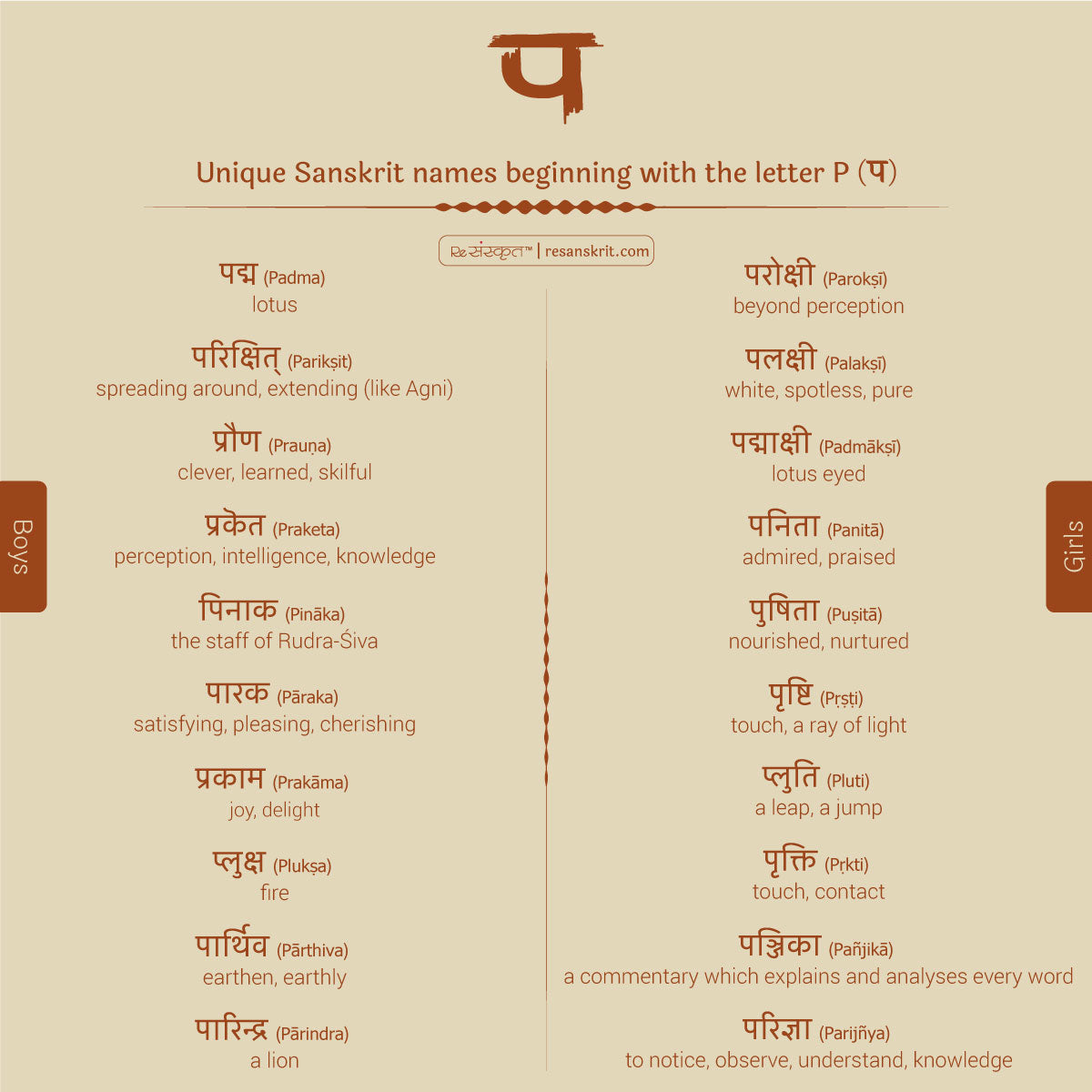
Additional unique Sanskrit names starting with the letter P (प)
Names for boys
- Paṭīra (पटिर): sandalwood tree
- Patañjali (पतञ्जलि): a celebrated grammarian (author of Mahābhāṣya), a philosopher (founder of Yoga philosophy)
- Padma (पद्म): lotus
- Padmahāsa (पद्महास): smiling like / with a lotus
- Padmākara (पद्माकर): assemblage of lotuses
- Paniṣṭha (पनिष्ठ): very wonderful, glorious
- Parāka (पराक): a sort of religious penance
- Parikṣit (परिक्षित्): spreading around, extending (like Agni)
- Paricodita (परिचोदित): set in motion
- Paridhīra (परिधीर): very deep
- Parimala (परिमल): fragrant substance, fragrance, perfume
- Parimita (परिमित): measured, regulated
- Parihāṭaka (परिहाटक): made of pure gold
- Parparīka (पर्परिक): the sun
- Pallava (पल्लव): a sprout, spring, bud, blossom
- Pavana (पवन): purifier, wind or God of wind
- Pavita (पवित): purified, cleansed
- Pāṇḍara (पाण्डर): white, pale yellow, jasmine blossom
- Pāraka (पारक): satisfying, pleasing, cherishing
- Pāramārthika (पारमार्थिक): relating to high or spiritual object
- Pārindra (पारिन्द्र): a lion
- Pāruṣṇa (पारुष्ण): a kind of bird
- Pārtha (पार्थ): born from Pṛthā, name of Arjuna
- Pārthiva (पार्थिव): earthen, earthly
- Pālakāpya (पालकाप्य): name of an ancient sage
- Pālinda (पालिन्द): incense
- Pāvaka (पावक): pure, clear, shining, bright
- Pāvita (पावित): cleansed, purified
- Pāvirava (पाविरव): lightning
- Pāśaka (पाशक): an ornament for the feet
- Picavya (पिचव्य): the cotton plant
- Pināka (पिनाक): the staff or bow Specially of Rudra-Śiva
- Piśāṅgaka (पिशाङ्गक): attendant of Viṣṇu
- Piyuṣa (पियुष): milk of a cow during the first seven days of calving
- Puraṇa (पुराण): the sea, the ocean
- Puruṣendra (पुरुषेन्द्र): lord of men i.e a king
- Puruṣottama (पुरुषोत्तम): best among men, excellent or superior man
- Pulaka (पुलक): a species of edible plant, a kind of stone or gem
- Pulina (पुलिन): a sandbank, a small island or bank in the middle of a river, an islet, a sandy beach
- Puṣkara (पुष्कर): a blue lotus, name of a celebrated place of pilgrimage (now called Pokhar in the district of Ajmer)
- Pūnita (पूनित): cleansed, purified
- Pūyamāna (पूयमान): being cleansed or purified
- Pūjaka (पूजक): honoring, respecting, worshiping, a worshiper
- Pūrṇaka (पूर्णक): the blue jay, species of a tree
- Paunḍra (पौण्ड्र): a species of sugar-cane, name of the conch shell of Bhīma
- Paunḍarika (पौण्ड्रिक): consisting of lotus flowers
- Prakāma (प्रकाम): joy, delight
- Prakāśa (प्रकाश): appear, shine, become evident or manifest
- Praketa (प्रकॆत): perception, intelligence, knowledge
- Pragalbha (प्रगल्भ): bold or confident, behave resolutely
- Praguṇa (प्रगुण): right, correct, ho nest, upright
- Praghoṣa (प्रघोष): sound, noise, son Kṛṣṇa
- Praiṣa (प्रैष): sending, direction, invitation, summons, order, call
- Prauṇa (प्रौण): clever, learned, skilful
- Plukṣa (प्लुक्ष): fire
Names for girls
- Pañjikā (पञ्जिका): a perpetual commentary which explains and analyses every word
- Paṇḍā (पण्डा): wisdom, knowledge, learning
- Patākā (पताका): a flag, banner
- Patañcikā (पञ्चिका): the bow string
- Padmākṣī (पद्माक्षी): lotus eyed
- Padminī (पद्मिनी): a multitude of lotuses
- Panitā (पनिता): admired, praised
- Paniṣṭī (पनिष्टी): admiration, praise
- Parādevī (परादेवी): a particular form of Devī
- Pariciti (परिचिति): acquaintance, familiarity, intimacy
- Parijñya (परिज्ञा): to notice, observe, understand, knowledge
- Pariṇītā (परिणीता): married
- Parimā (परिमा): measure, periphery
- Pariśobhitā (परिशोभिता): beautiful, adorned
- Paroṣṭī (परोष्टी): name of a river
- Parokṣī (परोक्षी): beyond perception
- Paryutsukā (पर्युत्सुका): very excited
- Palakṣī (पलक्षी): white
- Pahlikā (पह्लिका): water lettuce, shell flower
- Pāñcālī (पाञ्चाली): princess of Pañcāla, name of Draupadī
- Patalī (पातली): pale red, pink
- Pāḍinī (पादिनी): an earthen pot
- Pārvatī (पार्वती): a mountain stream, wife of Śiva
- Pārṣikā (पार्षिका): metron, name of a woman
- Pālikā (पालिका): the tip of the ear, the edge, boundary
- Pāvanī (पावनी): purifying, purificatory
- Pāvīravī (पावीरवी): daughter of lightning
- Pipāsā (पिपासा): thirst
- Pilpilā (पिल्पिला): name of Goddess Lakṣmi
- Piyuśā (पियूषा): nectar drop
- Piyūkṣā (पियुक्षा): species of a tree
- Pīlā (पीला): name of an Apsaras
- Puṇyā (पुण्या): auspicious, fair, good, right, virtuous, meritorious
- Pūpuṣā (पूपुषा): wish or desire to cleanse or purify
- Puralā (पुरला): name of Durgā
- Puravī (पुरवी): a Rāgiṇi in music
- Purvaṇikā (पुर्वणिका): variously manifested
- Puṣitā (पुषिता): nourished, nurtured
- Puṣkarā (पुष्करा): the tip of an elephant’s trunk, water, the sky, heaven, an arrow, the blade or the sheath of a sword, the art of dancing
- Puṣpitā (पुष्पिता): flowered, bearing flowers, blooming, in bloom
- Pūtā (पूता): cleaned, purified, pure, clear, bright
- Pūjā (पूजा): honor, worship, respect, reverence, veneration, homage to superiors
- Pūrṇimā (पूर्णिमा): the night or day of full moon
- Pṛkti (पृक्ति): touch, contact
- Pṛthā (पृथा): Kuntī, wife of Paṇḍu, mother of Karṇa (before marriage) and of Yudhiṣṭhira, Bhīma, Arjuna
- Pṛṣṭi (पृष्टि): touch, a ray of light
- Perā (पेरा): a kind of musical instrument
- Poyā (पोया): a kind of wind instrument
- Paulomī (पौलोमी): name of the wife of Indra, investigation, examination
- Praciti (प्रचिति): investigation, examination
- Praṇālī (प्रणाली): a channel
- Pritā (प्रीता): pleased, delighted, satisfied, joyful, glad
- Prīti (प्रीति): pleasure, joy, gladness, satisfaction, affection, love
- Prekṣā (प्रेक्षा): seeing, viewing, beholding, regarding, looking on
- Pluti (प्लुति): a leap, a jump
Unique Sanskrit names starting with the letter B (ब)
Names for boys
- Banhiman (बन्हिमन्): abundance, multitude
- Bakoṭa (बकोट): a kind of crane
- Bakura (बकुर): a thunderbolt
- Bakula (बकुल): a kind of tree
- Badara (बदर): the jujube tree
- Badarī (बदरी): name of Viṣṇu
- Balakṣa (बलक्ष): white
- Balhāka (बल्हाक): a rain or thunder-cloud
- Bādhva (बाध्व): name of a Ṛṣi
- Balāditya (बलादित्य): the newly risen sun, morning sun
- Biṭhaka (बीठक): the sky
- Bimbita (बिम्बित): reflected back
- Budha (बुध): the one who is enlightened
- Buddhicintaka (बुद्धिचिन्तक): one who thinks wisely
- Budhakauśika (बुधकौशिक): author of Rāmarakṣā
- Budhajana (बुधजन): a wise man
- Bodhana (बोधन): prudent, clever, a wise man; name of Bṛhaspati
- Bṛhannaṭa (बृहन्नट): name of Arjuna
- Brahma (ब्रह्म): a priest
- Bruvāṇa (ब्रुवाण): speaking, telling
Names for girls
- Bakulamālā (बकुलमाला): a garland of Bakula flowers
- Bakulitā (बकुलिता): furnished with Bakula trees or flowers
- Badarikā (बदरिका): the fruit or berry of the jujube
- Bandhurā (बन्धुरा): curved, rounded, pleasant, beautiful, charming
- Bahalā (बहला): thick, dense, compact, firm, solid
- Bahulā (बहुला): a cow, the indigo plant
- Bāgeśrī (बागेश्री): name of a Rāgiṇī
- Bimbinī (बिम्बिनी): the pupil of the eye
- Bisinī (बिसिनी): a lotus
- Buddhikārī (बुद्धिकारी): name of a princess
- Budhitā (बुधिता): known, understood
- Budhilā (बुधिला): wise, learned
- Bubhutsā (बुभुत्सा): desire to know, curiosity about
- Bodhikā (बोधिका): awakening, arousing
- Bṛhatī (बृहती): a particular meter of 36 syllables
- Bekurā (बेकुरा): a voice, a sound
- Brāhmī (ब्राह्मी): holy, devout
Unique Sanskrit names starting with the letter Bh (भ)
Names for boys
- Bhadra (भद्र): blessed, auspicious, fortunate, prosperous, happy
- Bharata (भरत): name of Agni, celebrated hero and monarch of India (the son of Duṣyanta and Śakuntalā)
- Bharadvāja (भरद्वाज): bearing speed or light
- Bharita (भरित): nourished, full
- Bharu (भरु): a lord, master, name of Viṣṇu or Śiva
- Bhartavya (भर्तव्य): to be borne, carried
- Bhartṛ (भर्तृ): a bearer, a preserver, protector
- Bharga (भर्ग): radiance, splendour, name of Śiva
- Bhakuṭa (भकुट): having a bright point
- Bhānava (भानव): peculiar to the sun
- Bhānukesara (भानुकेसर): ray-maned, the sun
- Bhāma (भाम): light, brightness, splendour
- Bhāraṇḍa (भारण्ड): a fabulous bird
- Bhārata (भारत): descended from Bharata
- Bhāraya (भारय): a sky lark
- Bhārava (भारव): bow string
- Bhārgava (भार्गव): relating to/coming from Bhṛgu
- Bhāvodaya (भवोदय): rising of emotion or passion
- Bhāsa (भास): light, lustre, brightness
- Bhāsu (भासु): the sun
- Bhāskara (भासकर): making light, the sun
- Bhīṣaṇa (भीषण): terrifying, name of Śiva
- Bhīṣma (भीष्म): terrible, great, name of Śiva, son of Śantanu and Gaṅgā
- Bhūṣaṇa (भूषण): decorating, adorning, embellishment
- Bhṛgu (भृगु): name of a mythical race closely connected with fire
- Bhṛśa (भृश): strongly, greatly
- Bhairava (भैरव): name of a form of Śiva
- Bhairika (भैरिक): name of son of Kṛṣṇa by Satyabhāmā
- Bhautika (भौतिक): name of Śiva
- Bhaumya (भौम्य): being on earth
- Bhrānta (भ्रान्त): wandering or roaming about
- Bhrāja (भ्राज): shining, glittering
- Bhrāji (भ्राजी): splendour, lustre
- Bhrājiṣṇu (भ्राजिष्णु): shining, splendid, radiant
Names for girls
- Bhadrikā (भद्रिका): good, brave, beautiful
- Bhadrā (भद्रा): blessed, auspicious, prosperous, happy
- Bhakti (भक्ति): devotion
- Bhāriṇī (भारिणी) nourishes, full
- Bhavayānī (भवयानी): coming from Śiva, Gaṅgā
- Bhavānī (भवानी): name of a Goddess identified in later times with Pārvatī, wife of Śiva, in pacific and amiable form
- Bhavyā (भव्या): being, existing, present
- Bhāti (भाति): light, splendour, perception, knowledge
- Bhānavī (भानवी): a kind of pace
- Bhānutā (भानुता): state of being the sun
- Bhāgīrathī (भागीरथी): name of Gaṇgā
- Bhāratī (भारती): a female descendent of Bharata, name of a deity later identified with Sarasvatī
- Bhavānī (भवानी): displaying, manifesting
- Bhavanā (भावना): the act of producing
- Bhāvikī (भाविकी): actually being or existing, real, natural
- Bhāsvara (भास्वर): shining, light, brilliant
- Bhīmā (भीमा): tremendous, terrific
- Bhīmodarī (भीमोदारी): name of Umā
- Bhukti (भुक्ति): enjoyment
- Bhuśandī (भूषन्डी): kind of a weapon
- Bhuvā (भुवा): atmosphere
- Bhūdhatrī (भूधात्री): earth mother
- Bhūtā (भूता): actually happened
- Bhūtika (भूतिका): species of a plant
- Bhūti (भूति): existence
- Bhūmi (भूमि): the earth, soil, ground
- Bhūmikā (भूमिका): the earth, soil, ground, in drama - part/ character, in Yoga - degree, step
- Bhūvarī (भूवरी): name of a goddess
- Bhūṣā (भूषा): ornament, decoration
- Bhṛṅgamārī (भ्रङ्गमारी): name of a flower
- Bhṛṣṭi (भृष्टि): spike, point
- Bhairavī (भैरवी): a particular form of Durgā
- Bhomirā (भोमिरा): coral
- Bhaulī (भौली): name of a Rāga
- Bhrānti (भ्रान्ति): wandering or roaming about
- Bhrājakī (भ्राजकी): causing to shine, making bright
- Bhrāji (भ्राजि): splendour, lustre
- Bhrādinī (भ्रादिनी): a particular Śruti in music
Unique Sanskrit names starting with the letter H (ह)
Names for boys
- Hari (हरि): name of Viṣṇu
- Harmuṭa (हर्मुट): the sun
- Harṣa (हर्ष): joy, pleasure
- Haṃsarāja (हंसराज): king of swans
- Hārdika (हार्दिक): affectionate
- Harṣavardhana (हर्षवर्धन): the one who increases pleasure
- Himāṇśu (हिमांशु): cool rayed, the moon
- Hiraṇmaya (हिरण्मय): golden, gold-coloured, name of Brahma
- Hiraka (हिरक): a diamond
- Hutāṇśa (हुतांश): a part of an oblation
- Hṛdāṇṣu (हृदांषु): pleasant rays
- Hṛshi (हृषि): joy, satisfaction ,pleasure
- Hṛṣikeśa (हृषिकेश): lord of the senses (Manas i.e the mind)
- Hemanta (हेमन्त): winter, cold season
- Heramba (हेरम्ब): name of Ganeśa
Names for girls
- Haṃsikā (हंसिका): a swan
- Hariṣā (हरिषा): a particular kind of condiment
- Harṣadā (हर्षदा): the one who gives happiness
- Harṣikā (हर्षिका): a kind of metre
- Hṛdayā (हृदया): heart
- Hṛidyā (हृद्या): innermost
- Hṛṣitā (हृषिता): cheerful, glad, happy
- Hṛṣṭi (हृष्टि): delight, joy, rapture
- Hemā (हेमा): gold
- Hemamālā (हेममाला): golden garlanded,name of the wife of Yama
- Hemamālikā (हेममालिका): golden necklace
- Hrī (ह्रि): modesty, shyness
- Hriti (ह्रिति): bashfulness
- Hlādikā (ह्लादिका): refreshing, gladdenning
- Hūti (हूति): calling, invocation
Unique Sanskrit names starting with the letter T (त)

Additional unique Sanskrit names starting with the letter T (त)
Names for boys
- Takśaka (तक्षक): name of a tree
- Tañjala (तञ्जल): the Cātaka bird
- Taṇḍu (तण्डु): name of an attendant of Śiva
- Tanmaya (तन्मय): absorbed in/identical with
- Tanaya (तनय): a son, name of Vasiṣṭha
- Tanuvardhana (तनुवर्धन): name of Viṣṇu
- Tapatanaya (तपतनय): on of the sun i.e Karṇa
- Tapita (तपित): refined gold
- Tapobala (तपोबल): power acquired by performing austerities
- Tamālaka (तमालक): bark of a bamboo
- Tamīśvara (तमीश्वर): the moon
- Tamoghna (तमोघ्न): destroyer of darkness, the sun, fire name of Viṣṇu, Śiva
- Taraṇa (तरण): final place, heaven
- Taranta (तरन्त): the ocean
- Taruṣa (तरुष): a conqueror, overcomer
- Taruṇa (तरुण): progressive, young, tender, juvenile
- Tarka (तर्क): conjecture
- Tarpaṇa (तर्पण): name of a plant, satiating, refreshing gods and deceased by presenting them libations of water
- Tarpara (तर्पर): bell hanging from the throat of a cow
- Tarṣa (तर्ष): thirst, wish, desire
- Talina (तलिन): thin, fine
- Tallaja (तल्लज): an excellent specimen
- Tavas (तवस्): strong, energetic
- Taviṣa (तविष): strong, energetic, courageous, heaven, ocean
- Tavya (तव्य): strong
- Tāttvika (तात्विक): in accordance with reality
- Tādātmaka (तादात्मक): denoting the unity of the nature
- Tāpana (तापन): illuminating
- Tijila (तिजिल): the moon
- Tittirika (तित्तिरिक): a partridge
- Tiniśa (तिनिश): Indian rosewood
- Timita (तिमित): quiet, steady, fixed
- Timiśa (तिमिश): name of a tree
- Tirima (तिरिम): a kind of rice
- Tiriṭa (तिरिट): tiara, diadem
- Tiṣya (तिष्य): name of a nakṣatra
- Tīkṣṇavega (तीक्ष्णवेग): possessing great velocity
- Tuṅga (तुङ्ग): prominent, erect, lofty
- Tuja (तुज): a thunderbolt
- Turaṇya (तुरण्य): swift
- Tvyojas (त्वोजस्): very powerful
- Tuṣṭa (तुष्ट): satisfied, pleased
- Tuṣāra (तुषार): frost, snow, mist, thin rain
- Tūṇava (तूणव): a flute
- Tūṣṇika (तूष्णिक): silent
- Tṛṣṇaka (तृष्णक): desirous, eager
- Teja (तेज): sharpness
- Tejas (तेजस्): gleaming with lustre
- Toṣa (तोष): satisfaction, contentment, pleasure, joy
- Tautika (तौतिक): a pearl oyster
- Tvarāyukta (त्वरायुक्त): expeditious
- Tveṣas (त्वेषस् ): energy, impulse
Names for girls
- Taṭākinī (तटाकिनी): a large pond
- Tridhā (त्रिधा): power of three goddesses
- Tanvī (तन्वी): thin, slender, attenuated
- Tanutā (तनुता): thinness, littleness. tenuity
- Tapatī (तपती): ‘warming’, name of the daughter of the sun and the mother of the Kurus
- Tapadyutī (तपद्युती): brilliant like the sun, sunshine
- Tapasutā (तपसुता): ‘sun-daughter’, the Yamunā river
- Tapasyā (तपस्या): produced by heat, belonging to austerity
- Taponiṣṭhā (तपोनिष्ठा): practising austerities
- Tamālinī (तमालिनी): place overgrown with Tamāla trees, auspicious place
- Tampā (तम्पा): a cow
- Taraṅgiṇī (तरङ्गिणी): river
- Taraṅgītā (तरङ्गीता): having folds as waves
- Taraṇī (तरणी): quick, untired, energetic
- Taraṇīvallī (तरणीवल्ली): Himalayan balsam
- Tarikā (तरिका): the skin in hot milk
- Taritā (तरिता): leader
- Taralā (तरला): glittering
- Taravī (तरवी): quadrature
- Tarupaṅkti (तरुपङ्क्ति): a row of trees
- Talinā (तलिना): thin, fine
- Taviṣī (तविषी): power, strength, courage, name of the daughter of Indra
- Tātparyā (तात्पर्या): devoting oneself, aim
- Tādurī (तादुरी): swimmer
- Tāpanī (तापनी): illuminating
- Tārakāṇī (तारकणी): starry night
- Tārā (तारा): star
- Tāviśī (ताविशी): moon
- Titikṣā (तितिक्षा): endurance, forbearance, patience, daughter of Dakṣa
- Titirṣā (तितिर्षा): desire of final emancipation
- Tithi (तिथि): a lunar day
- Tinikā (तिनिका): jowar
- Timilā (तिमिला): name of a musical instrument
- Tilottamā (तिलोत्तमा): name of an Apsaras
- Tīvrā (तीव्रा): strong, severe, intense
- Tuṅgā ( तुङ्गा): name of a metre, river in Mysore
- Tuḍī (तुडी): name of a Rāgiṇī
- Turvaṇī (तुर्वणी): overpowering, victorious
- Tulasī (तुलसी): the holy basil
- Tuṣṭi (तुष्टि): satisfaction, contentment, daughter of Dakṣa
- Tūtumī (तूतुमी): strong
- Tūrtā (तूर्ता):quick, expeditious
- Tūlā (तुला): a lamp wick
- Tṛpti (तृप्ति): satisfaction, gladden, contentment
- Tṛṣā (तृषा) /Tṛṣṇā (तृष्णा): thirst
- Toḍikā (तोडिका): name of a Rāgiṇī
- Totilā (तोतिला): a form of Durgā
- Toṣaṇī (तोषणी): satisfying, gratifying
- Tviṣā (त्विषा): light, splendour
- Tvaṣṭī (त्वष्टी): Durgā
- Tviṣī (त्विषी): vehemence, energy
Unique Sanskrit names starting with the letter Y (य)
Names for boys
- Yakṣa (यक्ष): (name of a class of semi-divine beings or attendants of Kubera, exceptionally also of Viṣṇu) a living supernatural being, spiritual apparition.
- Yajata (यजत): (name of Śiva) worthy of worship, adorable, holy, sublime, a priest, the moon.
- Yajñadhara (यज्ञधर): (name of God Viṣṇu) bearer of sacrifice.
- Yaṇva (यण्व): name of a Sāman sung in a sacrifice.
- Yati (यति): (name of a mythical race of ascetics connected with the Bhṛgus and said to have taken part in the creation of the world) an ascetic, devotee, a disposer.
- Yadu (यदु): name of an ancient hero in Vedas often mentioned together with Turvaśa and described as preserved by Indra during an inundation. (Also, he’s the son of Yayati and king of the Cedi region).
- Yamaka (यमक): a religious observance or obligation.
- Yayāti (ययाति): (son of King Nahuśa) celebrated monarch of the lunar race.
- Yavīnara (यविनार): name of a son of Ajamīḍha or of Dvimīḍha or of Bharmyāśva or of Vāhyāśva.
- Yaśa (यश): beautiful, splendid, worthy, excellent.
- Yaśogopi (यशोगोपि): name of a sanskrit scholar.
- Yahu (यहु): swift, mighty, strong.
- Yāma (याम): course, progress, road, way, path, chariot.
- Yāmīra (यामीर): the moon.
- Yājñika (याज्ञिक): relating or belonging to sacrifice, a sacrificer, one well-versed in sacrificial ritual.
- Yādava (यादव): (name of Kṛṣṇa, name of various authors) belonging to Yadu clan.
- Yāska (यास्क): author of the Nirukta (which is a commentary on difficult Vedic words contained in the list called Nighaṇṭu).
- Yuga (युग): a yoke, team, an age of the world, long mundane period of years.
- Yudhiṣṭhira (युधिष्ठिर): (name of the eldest of the Pāṇḍavas) firm or steady in battle.
- Yogindra (योगिन्द्र): name of Yajñavalkya and Valmikī ṛṣis.
- Yauthika (यौथिक): belonging to a troop or herd, a companion, a comrade.
- Yuvarāja (युवराज): a prince.
- Yohula (योहुल): name of a man.
- Yodheya (योधेय): a warrior, combatant.
- Yamana (यमन): a Rāga in Hindustānī classical music.
Names for girls
- Yajā (याजा): name of a female tutelary being (mentioned with Sitā, Śamā and Bhūti).
- Yajñaśrī (यज्ञश्री): promoting sacrifice.
- Yatitā (यतिता): striven, endeavoured, attempted.
- Yatavratā (यतव्रता): observing vows, firm of purpose.
- Yamī (यामी): twin-born, forming a pair. (sister of deity of death, according to Indian Mythology, i.e. Yama).
- Yamanī (यमनी): restraining, governing, binding, typing.
- Yamalā (यमला): name of a Tantra deity, of a river.
- Yamunā (यमुना): name of a river commonly called the Jamunā or Jumnā.
- Yavakṣā (यवक्षा): name of a river mentioned in ancient scriptures.
- Yaśadā (यशदा): bestowing fame or honour.
- Yaśaśrī (यशश्री): success or prosperity in the form of wealth.
- Yaśodā (यशोदा): (mother of Lord Kṛṣṇa) bestowing fame or honour, name of a particular brick used for sacrificial altar.
- Yaṣṭikā (यष्टिका): a staff, stick, club, a particular pearl ornament or necklace, an oblong pond or tank.
- Yahvatī (यह्वती): ever-flowing (waters).
- Yāminī (यामिनी): (name of daughter of Prahlāda) night, consisting of watches.
- Yuti (युति): union, junction, connection, combination, sum.
- Yuvā (युवा): name of one of Agni’s arrows.
- Yogā (योगा): name of a śakti, of daughter of the Pitṛs called Barhiṣads.
- Yoginī (योगिनी): (name of Goddess Durgā) one absorbed in Yoga, any being endowed with magical power.
- Yaugikī (यौगिकी): relating to or derived from Yoga.
- Yoṣā (योषा): an adjective used for Vedic deity Uṣas, swift mare.
- Yojitā (योजिता): connected, put together, arranged, composed.
- Yogyā (योग्या): fit, qualified, serviceable, proper.
- Yūni (यूनि): connection, union.
- Yūthikā (यूथिका): a kind of Jasmine flower.

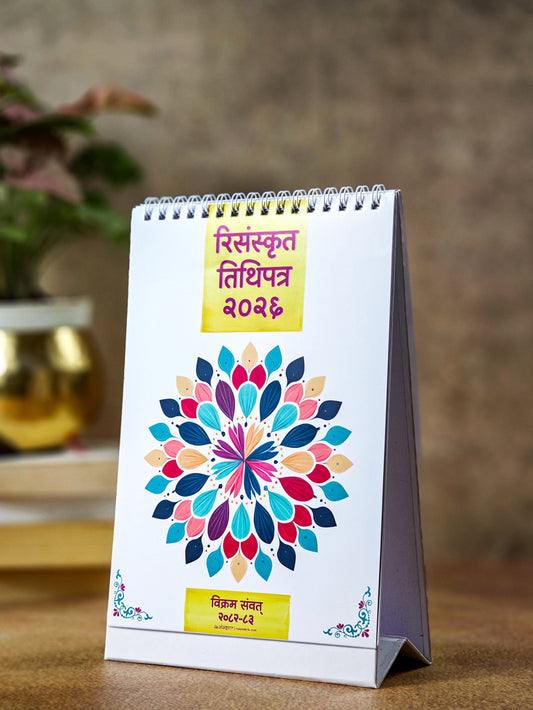

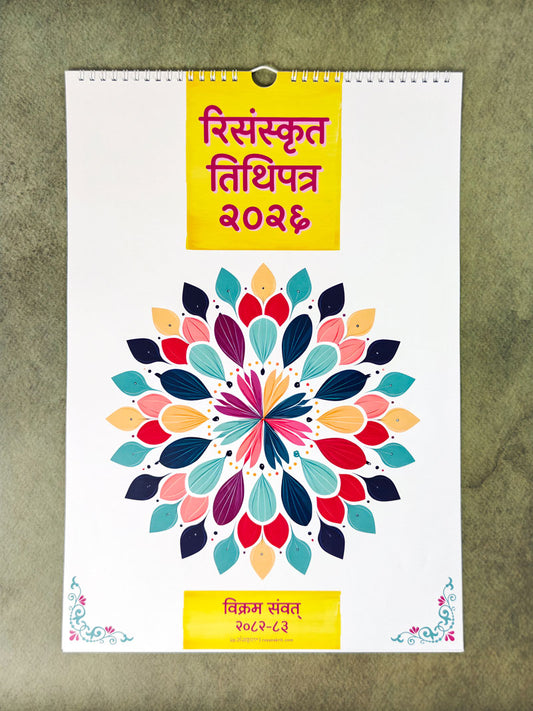

![[New Edition] ReSanskrit® 365 Days of Sanskrit Wisdom | Daily Sanskrit Quotes | With 100+ New Quotes, Hindi & English Translations🆕](http://resanskrit.com/cdn/shop/files/365-calendar-resanskrit-front-hero-shot_533x.jpg?v=1762351171)
![[New Edition] ReSanskrit® 365 Days of Sanskrit Wisdom | Daily Sanskrit Quotes | With 100+ New Quotes, Hindi & English Translations🆕](http://resanskrit.com/cdn/shop/files/365-calendar-resanskrit-quote-shot1_533x.jpg?v=1762351193)





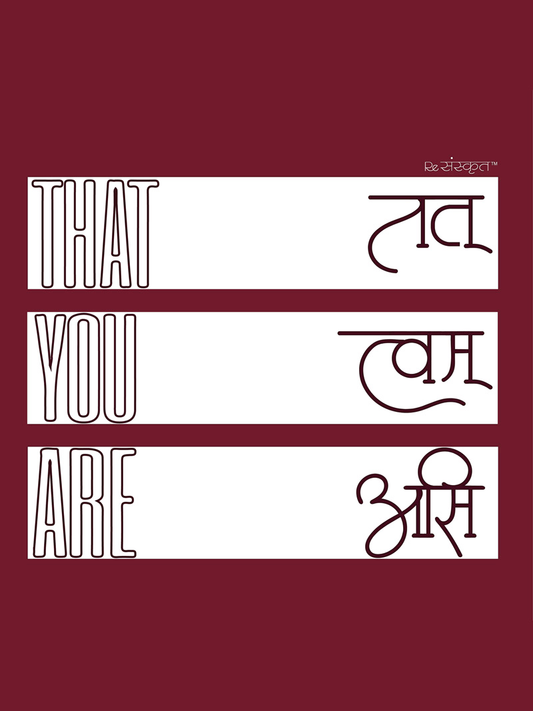
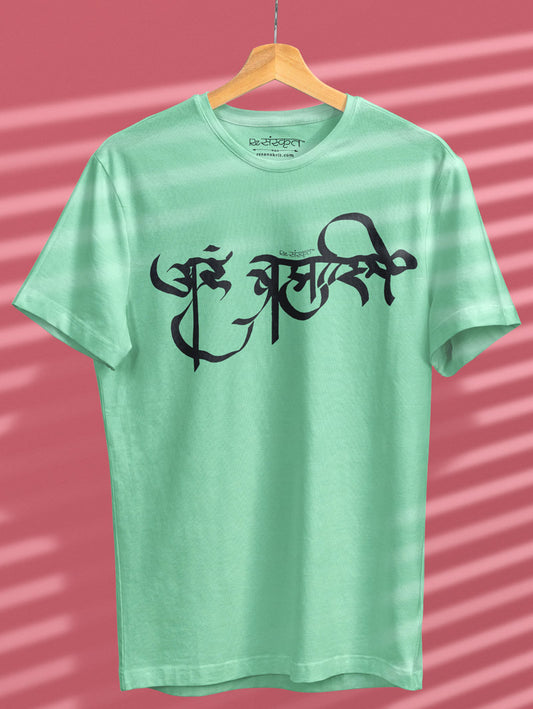
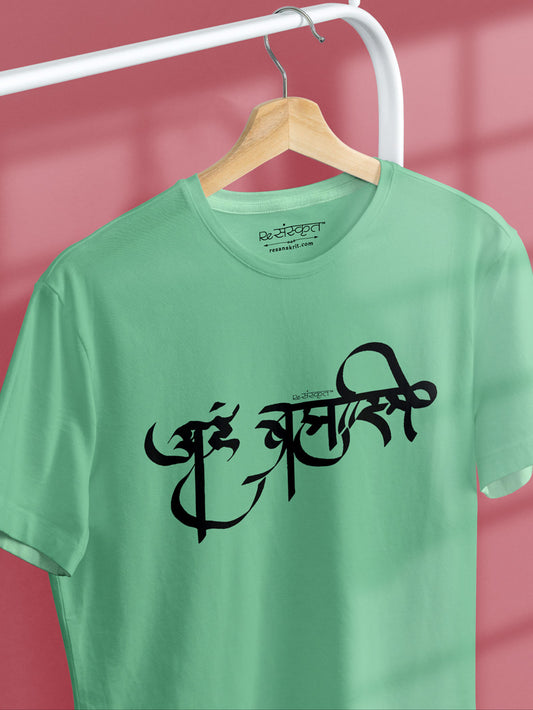



![[Part 2] Relevant Sanskrit Shlokas with Meaning in Hindi & English](http://resanskrit.com/cdn/shop/articles/Relevant-Sanskrit-Shlokas-Article-Cover-image-part-2_4499da7e-f9d9-46a6-b615-35f58befb606_165x.jpg?v=1764083926)
25 Comments
Plz suggest best name for boy frm the letter Bh bhu other than any good unique name who is born in August
Plz suggest me a boy name start with Y,F and BH
Plz suggest a name fr my daughter from sanskrit origin for simha rashi
Kh for boy
Can you please help with boys name starting with No, Ya, Yi, Yu. Is Yunay युनय a Hindi/sanskrit name? We found it is name of Lord Ganesh and Hanuman but there is no reason why they named Yunay? Can you please help me..
Leave a comment
Please note, comments need to be approved before they are published.